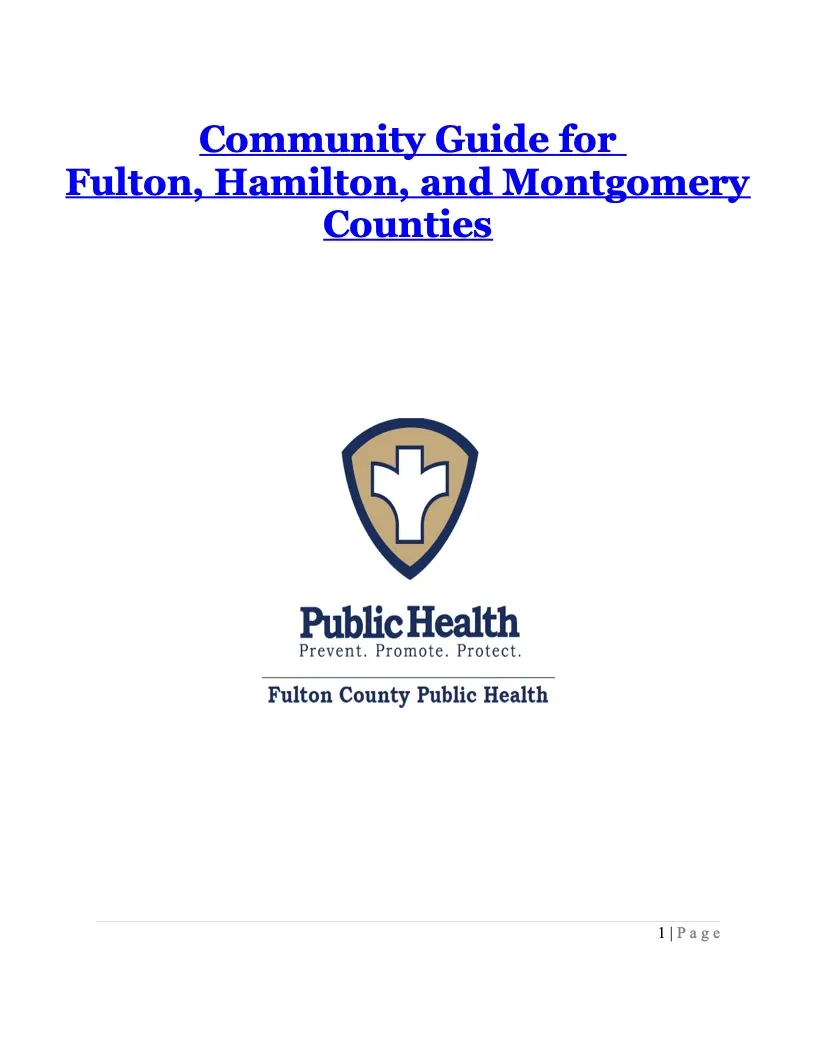

Public Health News
Flashcard Toy Recall
This recall involves two different TheKiddoSpace-branded children’s flashcard, talking toys:
• The animal-shaped, pastel-colored toys were sold with a varying number of flashcards. “Audible Flashcards” is printed on the front of the flashcard’s storage box and “Audible Flashcard Device” on the front of the toy storage box.
• The rectangular toys have a slot at the top to insert the flash cards, a speaker, volume and power buttons at the front. The toys come with multi-colored flash cards that have animals, shapes, people, foods or vehicle illustrations and the descriptive word written on the card.
Remedy: Consumers should stop using the recalled toys immediately, take them away from children and contact TheKiddoSpace for a free replacement toy or free USB cable, including shipping.
• For the animal-shaped toy, consumers will be asked to write “RECALLED” in permanent marker on the unit and submit a photo of the marked product to info@thekiddospace.com to receive a replacement toy of at least equal value to the purchase price of the recalled animal-shaped toy. Consumers should then dispose of the recalled toys in accordance with their local waste disposal requirements.
• For the rectangular toy, consumers will be asked to cut the USB cable and submit a photo of the cut USB cable to info@thekiddospace.com to receive a free replacement USB cable. Consumers should then dispose of the cut USB cable. Note: Button cell batteries are hazardous. Batteries should be disposed of or recycled by following local hazardous waste procedures.
.cpsc.gov/.../TheKiddoSpace-Recalls-Childrens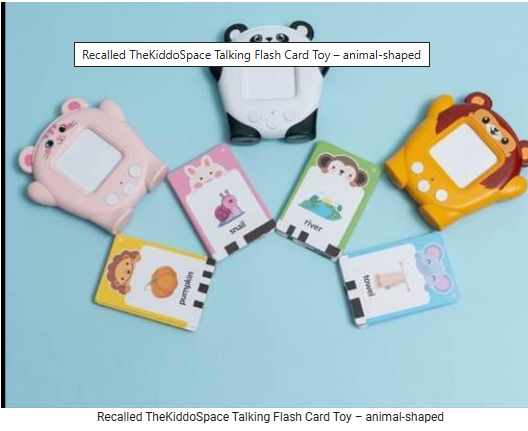
Build Budget-Friendly Meals
MyPlate Kitchen has recipes and resources to help build healthy, budget-friendly meals. Find #MyPlate Kitchen (and other healthy eating resources) at myplate.gov/whatsonmyplate. For more tips, follow #WhatsOnMyPlate and see how others are using MyPlate to save.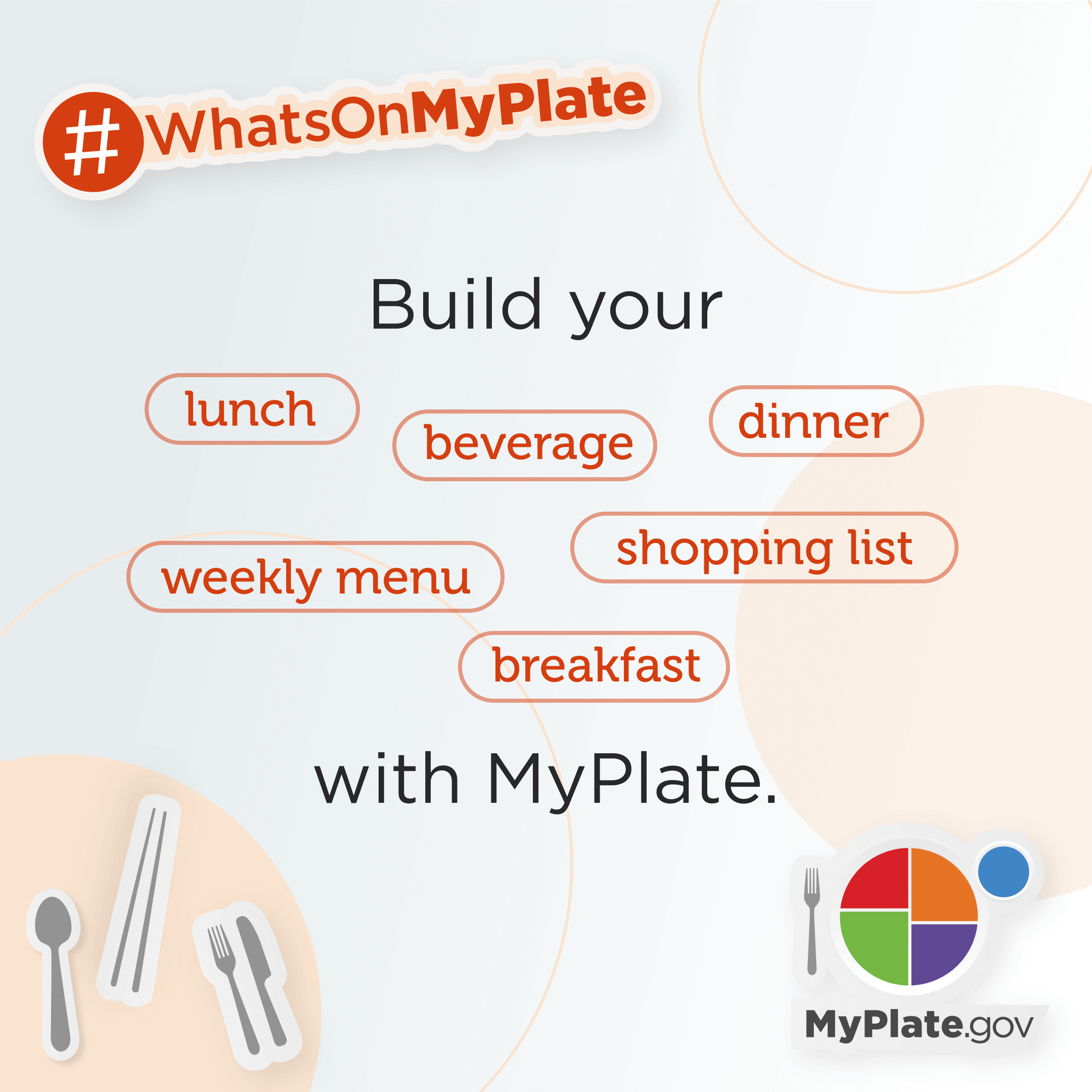
Colorectal Cancer Awareness
March is Colorectal Cancer Awareness Month. Raise awareness about colorectal cancer and the importance of screening. Nervous? Don’t be. It’s easy! And screening may actually prevent this cancer or find cancer early when it is easier to treat. health.ny.gov/.../campaign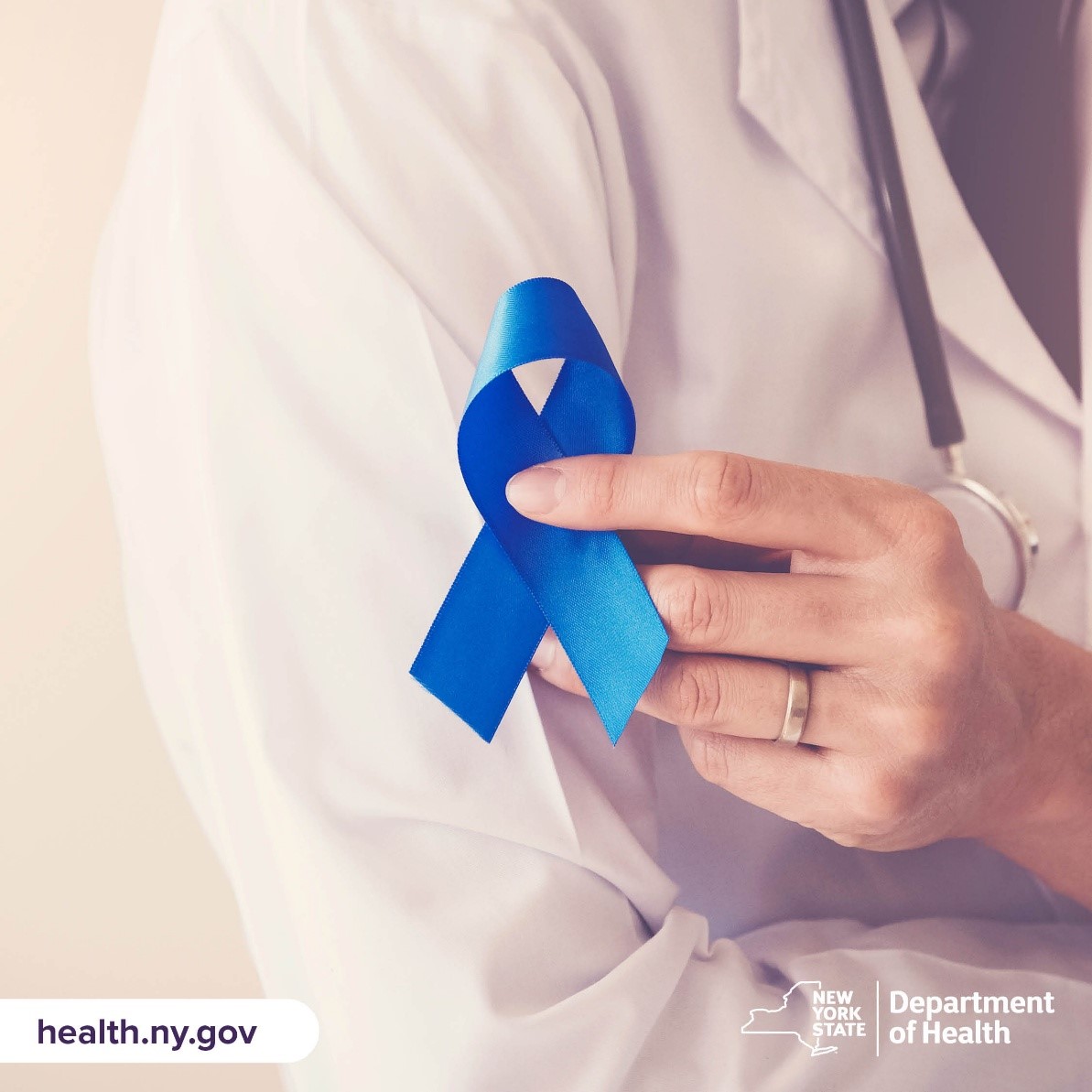
The Risks of Alcohol Use
Nearly 1 in 6 adults in NYS (16.2%) reported either binge or heavy drinking of alcohol in a Behavioral Risk Factor Surveillance System (BRFSS) telephone survey. Alcohol use can lead to unintentional injuries, violence and chronic diseases. Learn more at:
health.ny.gov/prevention/alcohol_surveillance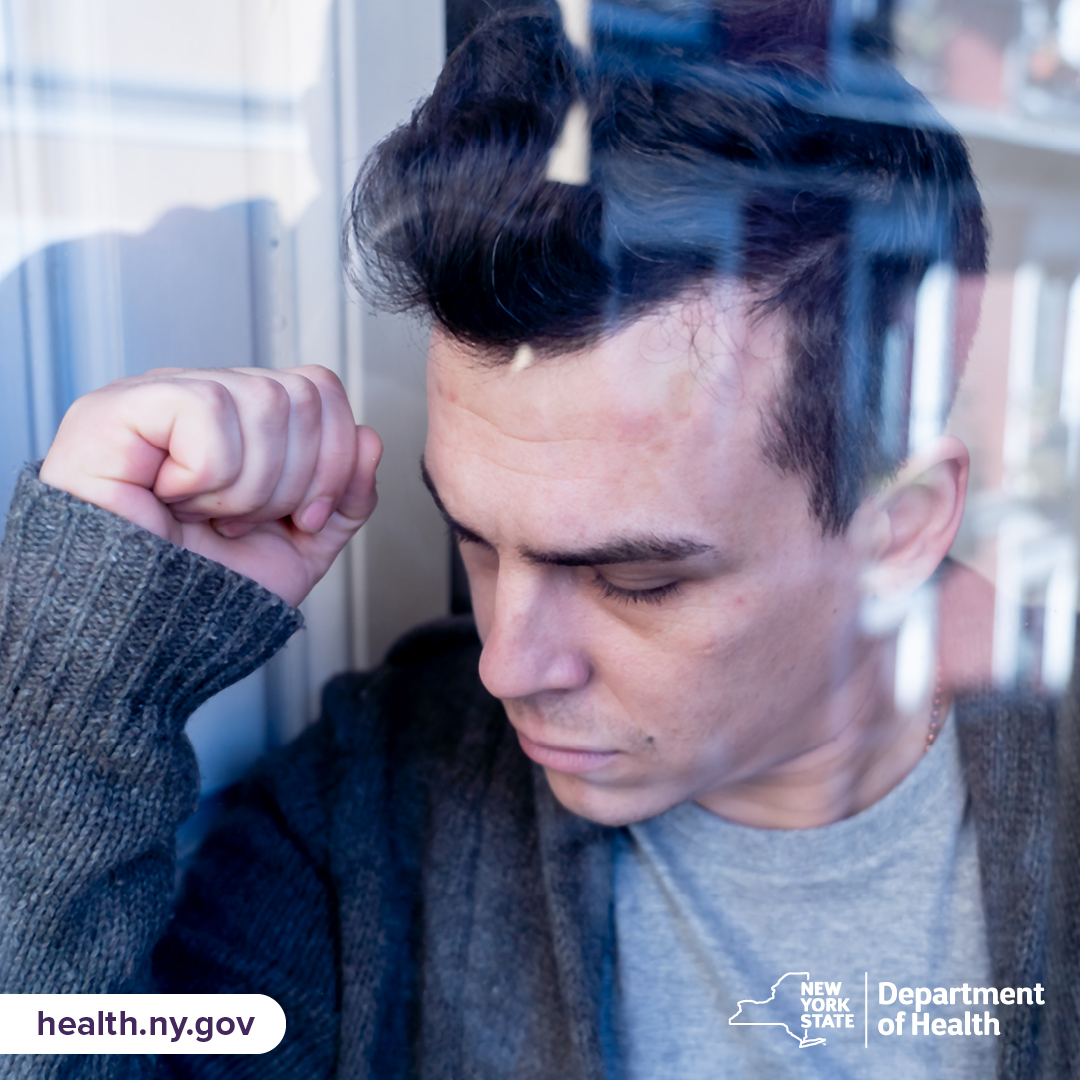
Indoor Walking Programs in Fulton County
Indoor walking/swimming is back at the Gloversville, Johnstown, and Mayfield school districts. They are a great way to stay active during the winter months. Indoor walking/swimming for all districts will only take place on days when school is in session and will be cancelled when district activities/school is also cancelled.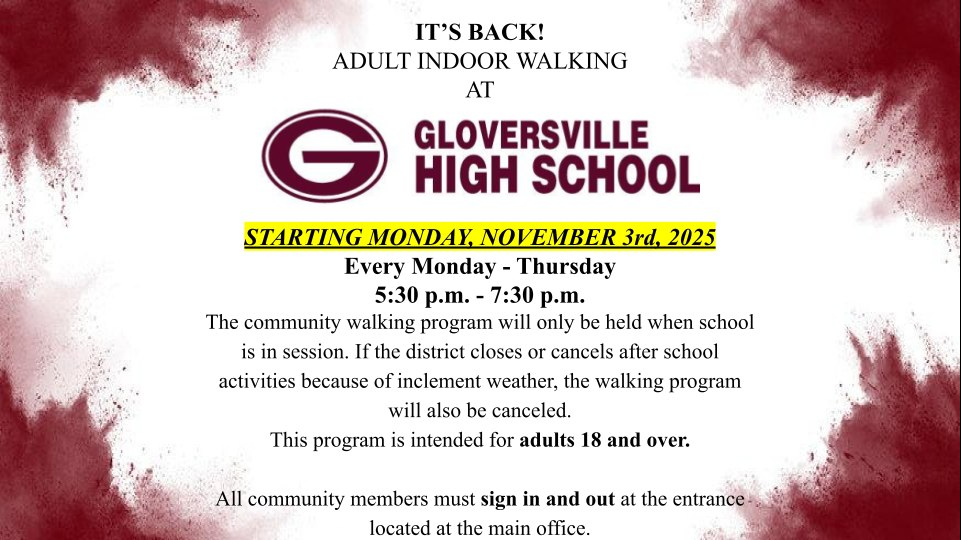
For Gloversville High School Indoor Walking Program:
• Takes place from November 3, 2025 – TBD, on Mondays – Thursdays from 5:30pm - 7:30pm.
• For adults that are 18 years and older.
• Participants must sign in and out at the entrance at the main office. 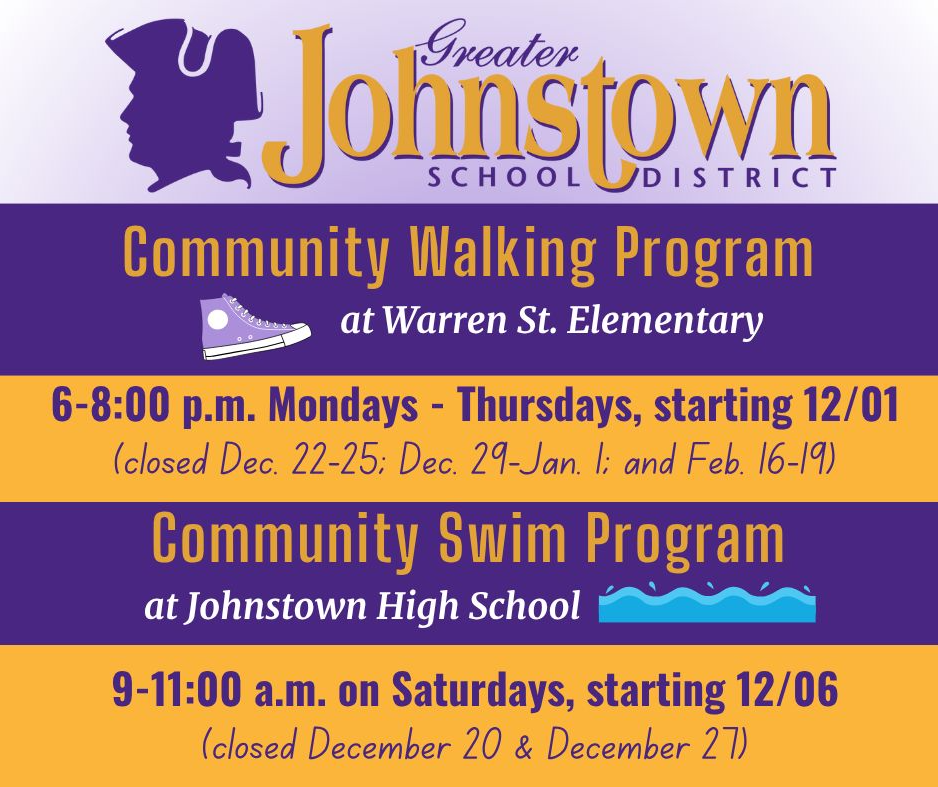
For the GJSD Indoor Walking Program:
• Takes place from December 1, 2025 – April 4, 2026, on Mondays – Thursdays from 6:00pm - 8:00 pm at Warren St. Elementary School.
• Use the main entrance and sign in with the school attendant present.
• Closed February 16, 2026 – February 19, 2026.
For the GJSD Indoor Swimming Program:
• Takes place from December 6, 2025 – TBD, on Saturdays from 9:00am - 11:00am at Johnstown High School.
• Use the back entrance by the pool/bus loop and sign in with the school attendant present.
• Children 12 and under must be accompanied by an adult. Toddlers and younger must wear swimming diapers in the pool. You are allowed to bring in your own swimming aides (swimmies and other devices that are intended to help you stay afloat and swim). Pool floats are prohibited.
For the Mayfield Elementary School Indoor Walking Program:
• Takes place from January 5, 2026 – TBD, on Mondays – Fridays from 5:00pm - 8:00pm.
• For adults that are 18 years and older. Those who are younger than 18 must be accompanied by an adult who is 18 years and older.
• Participants must sign in and out everytime they walk.
• Walkers must sign an insurance waiver at their first visit to the program that will be held on file. Insurance waivers will be available at the front door or can be accessed here: Waiver-fillable-PDF. To digitally sign the online waiver: please download first, complete and sign all fillable fields, and email to: anastasia.stacie@mayfieldcsd.org.
Fulton County Food Resource Map
🍎 Need help finding food resources in Fulton County?
We’ve created an interactive map showing local food pantries and community meal sites to make it easier for residents to find support.
Click the link to explore locations, hours, and contact information near you: google.com/maps/d/edit?mid=1SaoUtT0iXI3S9MGlz5gsZm12m2vGhCg
*Dates, times, and locations of sites are subject to change. Call the location with any questions.*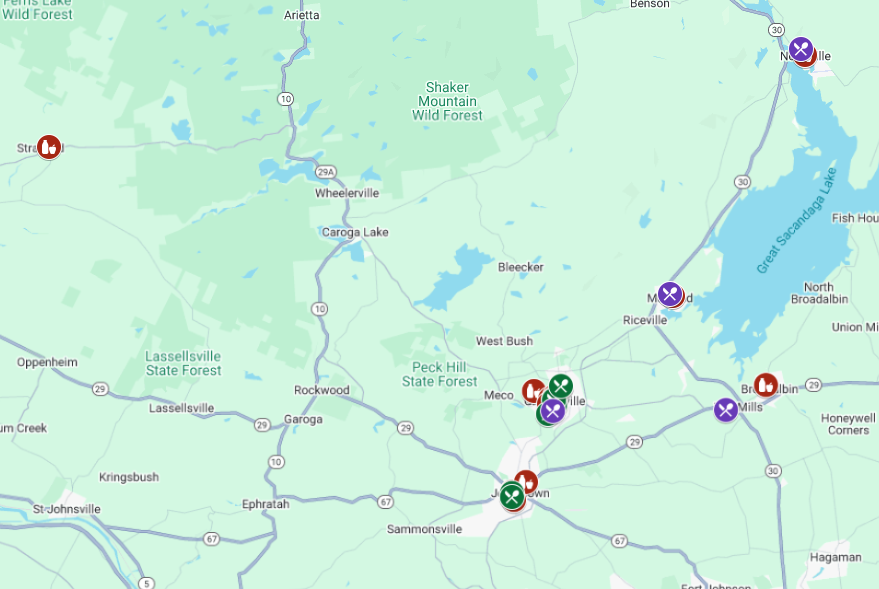
Spring Planning and Zoning Training
The Planning Boards of Fulton and Montgomery County are holding their annual Spring Planning and Zoning Training on March 24, 2026. Use the link below to register for free today.
Register Here: Spring Planning and Zoning Training Registration
February is Prenatal Infection Prevention Month
A healthy pregnancy starts with prevention! Maternal infections are easily passed along from mother to baby during pregnany and birth. These bacterial, viral or fungal infections can cause serious health risks to a growing fetus, as well as miscarriage and preterm labor.
The good news is that prenatal infections can be prevented by:
Getting vaccinated
Practicing good hand hygiene and dental care
Enjoying a healthy diet and
Seeking regular prenatal care
Learn more about preventing prenatal infections and supporting your baby during pregnancy here:
acog.org/.../preventing-infections-in-pregnancy
acog.org/womens-health/pregnancy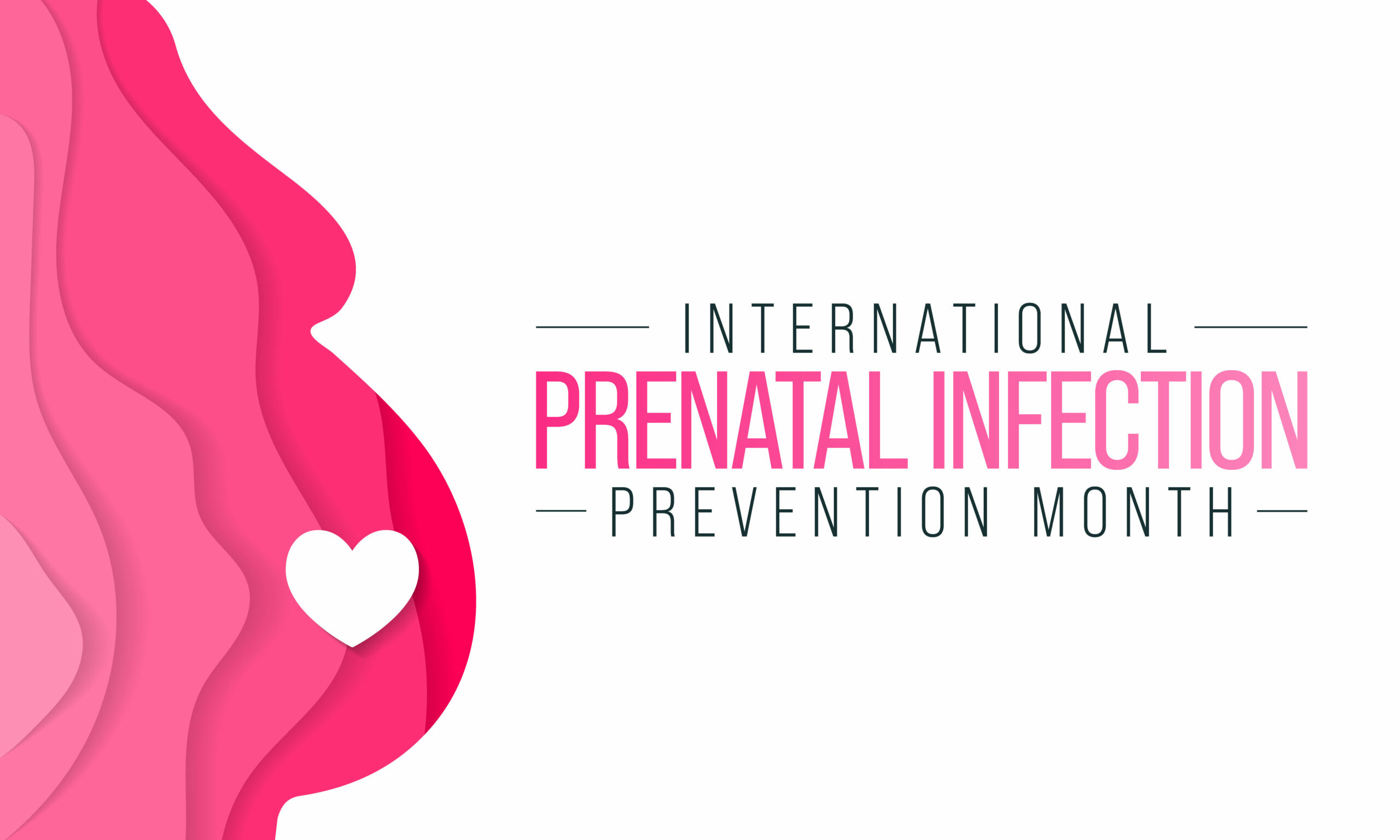
Lead Prevention Pilot Program
Leading In Lead Prevention Pilot Program grant funding may be available for lead based paint remediation and abatement for eligible properties. Scan the QR code, call or email Better Community Neighborhoods Inc. (BCNI) to learn more. bcnihousing.org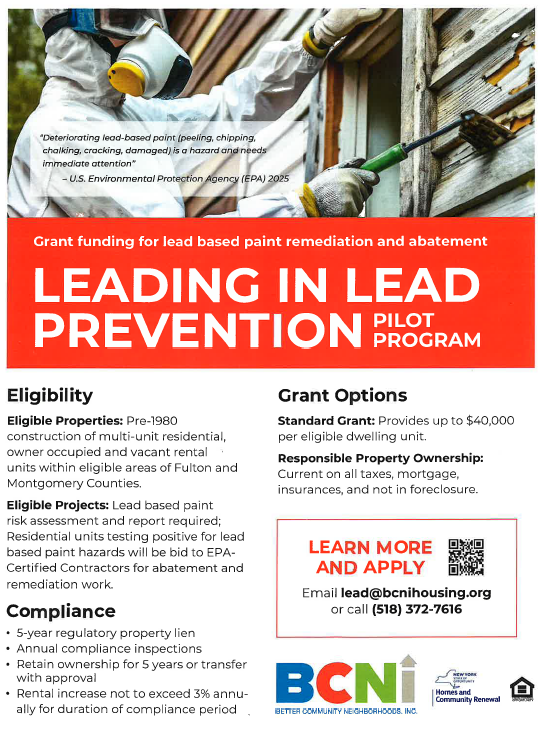
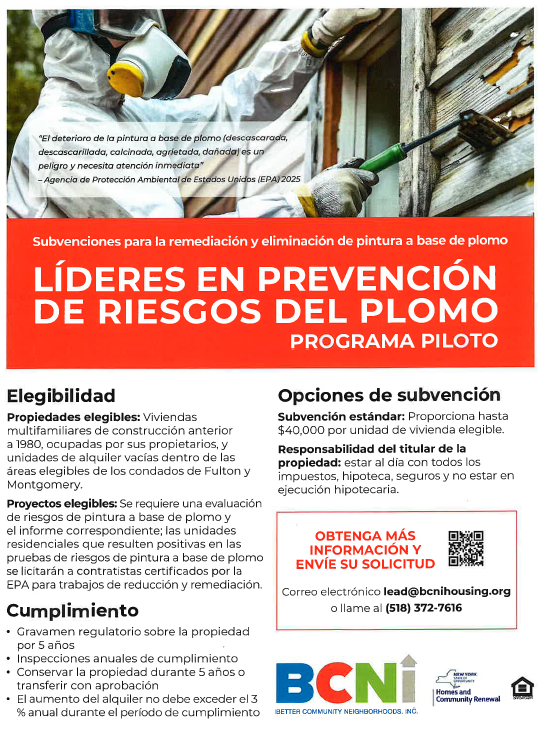
Recall on Rheumacare Capsules
Handelnine Global Limited d/b/a Navafresh is voluntarily recalling Rheumacare Capsules by Virgo UAP Pharma Pvt. Ltd. In testing conducted by the Food and Drug Administration the product has been found to contain lead at levels up to 11,100 ppm, which are higher than permissible levels. Click on the link provided to see if your product is part of the recall. fda.gov/...recall-rheumacare-capsules-virgo-uap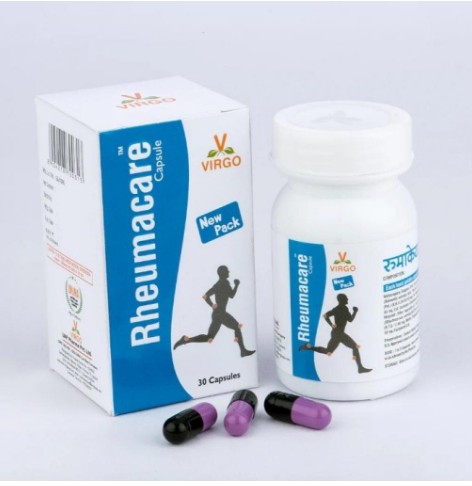
Maternal Heart Health Awareness
February is Heart Health Awareness month!
A healthy heart is the best start for a healthy pregnancy and newborn. During pregnancy, your heart is working harder than usual to pump blood to you and your baby. The extra stress can cause new problems to emerge during pregnancy, such as high blood pressure, diabetes, or preeclampsia. These problems can happen to you during pregnancy, in labor and delivery -- even up to a year after your child is born.
The good news is that high blood pressure and other conditions that put stress on the heart during pregnancy are preventable and treatable. The first step is getting early prenatal care and knowing your risk factors.
For more information on risk factors, prevention and care visit:
cdc.gov/.../high-blood-pressure-during-pregnancy.html
nhlbi.nih.gov/.../heart-health-and-pregnancy.
Steps to Fight Respiratory Viruses
Flu, RSV, COVID-19 and other respiratory illnesses can quickly become life threatening conditions. The first steps to protecting yourself and your family are:
1. Stay up-to-date on vaccines
2. Stop the spread by:
• washing hands with soap and water for at least 20 seconds
• avoid touching your eyes, nose and mouth,
• cough and sneeze into a tissue,
• If your sick, STAY HOME
If you or someone you love does get sick, seek medical attention early, before the condition becomes serious. Know when to see a doctor:
• A fever that doesn’t go down or go away
• A cough that lasts more than 2-3 weeks
• Painful swallowing (more than a sore throat)
• An earache, persistent headache or neck pain
• Symptoms that last more than 10 days or get worse instead of better
• Persistent or severe vomiting and or diarrhea
• Confusion or altered mental status (unable to respond correctly to simple questions)
For more information:
health.ny.gov/diseases/.../understanding
health.ny.gov/.../respiratory_viruses/
vaccines.gov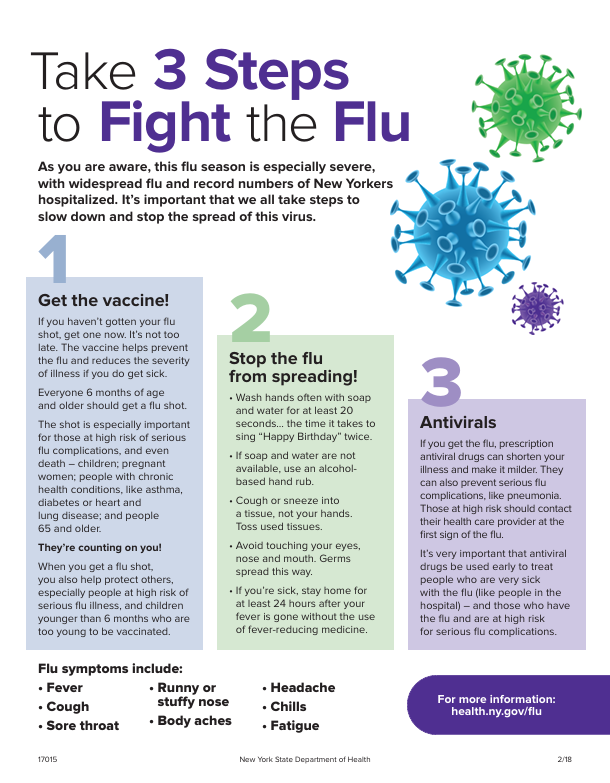
Fulmont Community Action Preschool Program
Fulmont Community Action is now accepting applications for their free preschool program in Fulton and Montgomery counties. This program is offered to eligible families for children ages 3-5.
Scan the QR code or visit fulmont.org to learn more.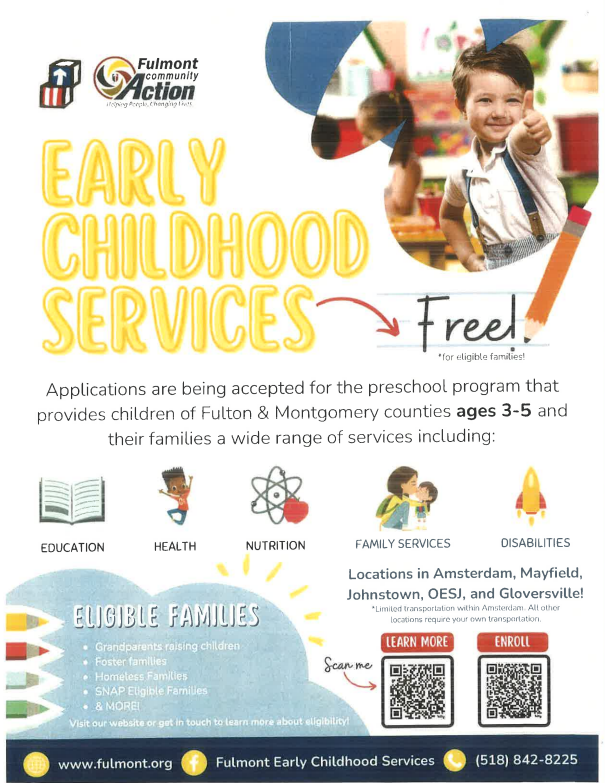
RSV Protection
RSV (Respiratory syncytial virus) is the leading cause of infant hospitalization in the U.S. As a parent or care giver it’s important you know the symptoms and seek medical attention quickly.
RSV symptoms in infants and young children may include:
• Runny nose
• Irritability
• Eating or drinking less
• Cough, which may progress to wheezing or difficulty breathing
• Apnea (pauses in breathing for more than 10 seconds)
There are 2 ways to protect your infant from RSV. Most infants only need one, not both.
1. RSV vaccine given during pregnancy, between 32-36 weeks pregnant and usually given seasonally from September – January.
2. RSV antibody recommended for infants younger than 8 months old and usually given seasonally from October – March.
For more information visit:
• cdc.gov/rsv/infants-young-children
• healthychildren.org/.../RSV-When-Its-More-Than-Just-a-Cold
• Youtube: RSV Prevention Breakthrough: Protect Your Baby with Nirsevimab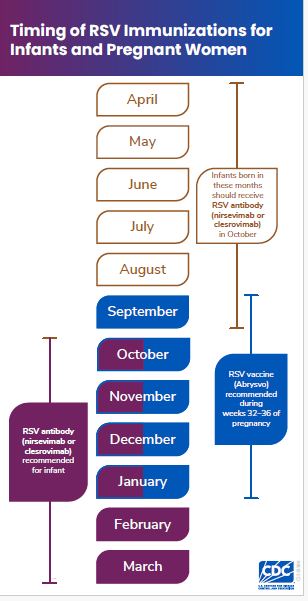
Workforce Development Childcare Scholarships
Struggling with child care costs? The Workforce Development Institute offers scholarships averaging $1,000/month per child to help working families afford quality care. See if you qualify: wdiny.org/childcare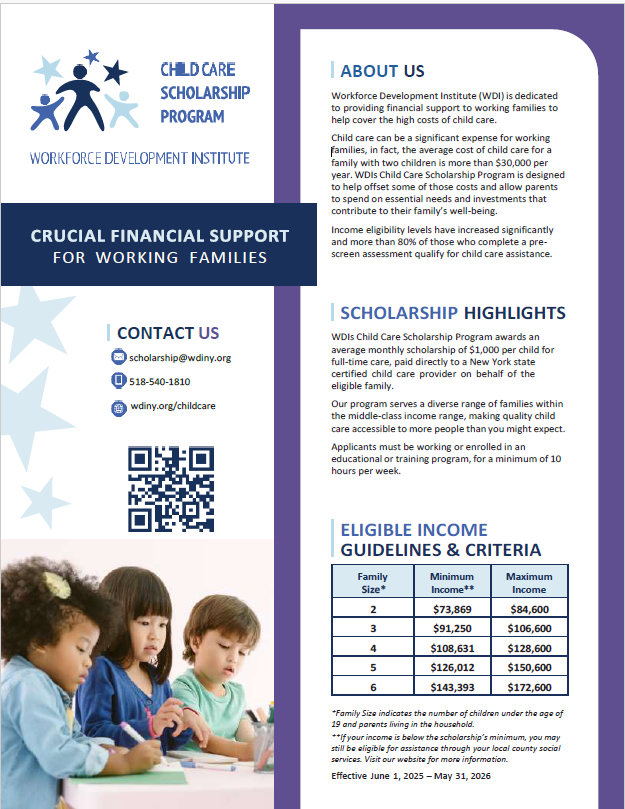
FACE Training - IEP for Preschool
Free Training: Creating the IEP for Preschool
Understand how an IEP is created and implemented in this session.
You can join on February 26, 2026 from 9am to 12pm.
mylearningplan.com/WebReg/ActivityProfile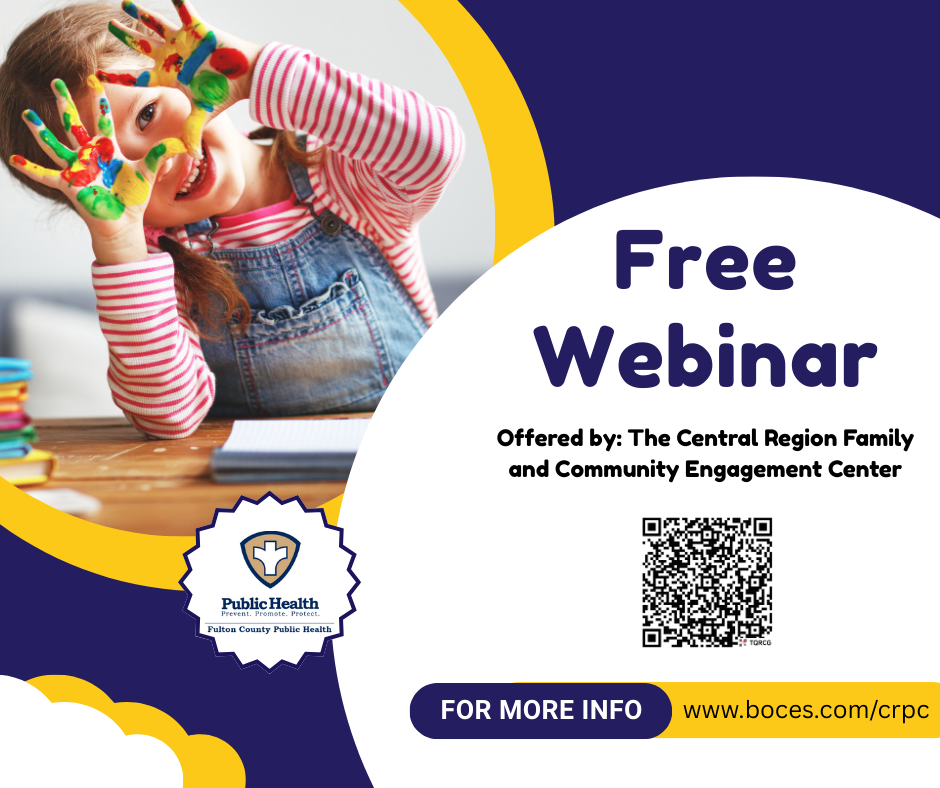
Program Overview Sessions for Early Intervention
Join the New York State Early Intervention Program for a virtual overview session to learn about programs offered for infants and toddlers with disabilities and developmental delays.
Information sessions will be held on the following dates from 7:00-8:00pm:
• Thursday, April 16, 2026
• Tuesday, August 11, 2026
Scan the code or use the link to sign up: https://www.eifamilies.com/early-intervention-program-overview-sigh-up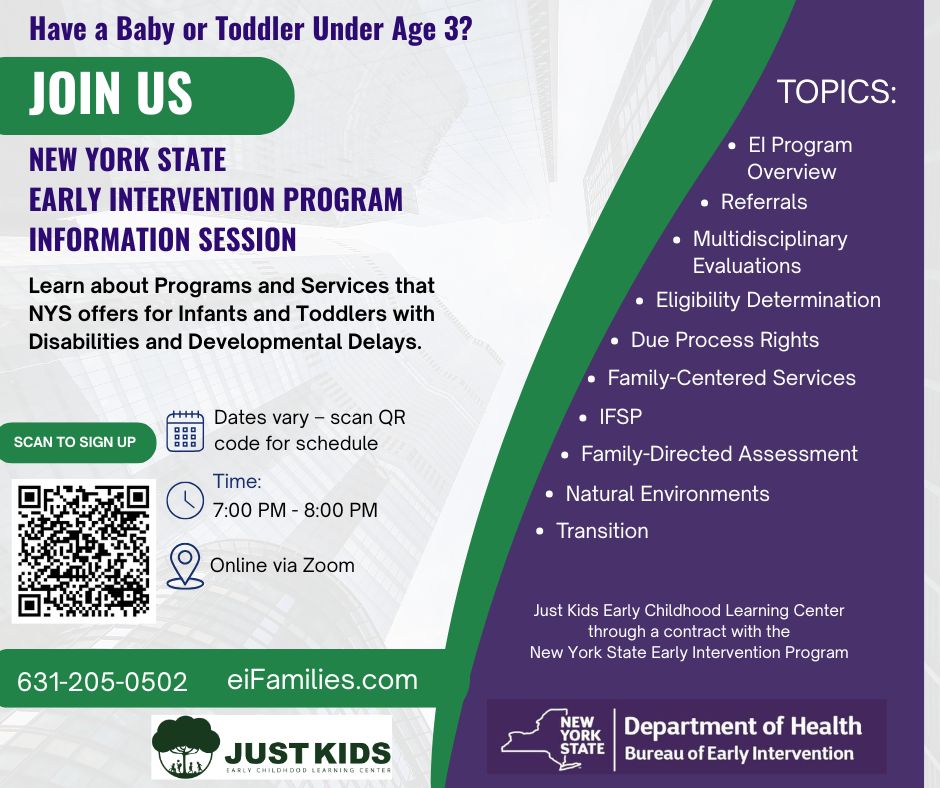
Free EPA Lead Trainings
FREE EPA Lead Trainings. EPA Certified Renovator Class Training Schedule for February, 2026. EPA certification is federally mandated when projects disturb lead-based paint in a pre-1978 home or residential unit and child-occupied facilities. Property owners, landlords, and contractors throughout New York State performing lead-safe repairs must be EPA Certified in Lead Renovation, Repair, and Painting (RRP) and follow specific work practices to prevent lead contamination. Trainings to become EPA RRP certified are offered by Cornell Cooperative Extension Albany County, an EPA accredited training provider. See the attached February 2026 EPA Lead Training Flyer or visit Cornell Cooperative Extension Albany County for a current schedule of free, local trainings to learn lead-safe work practices and help reduce childhood lead poisoning. Participants must pre-register. Class size is limited. All trainings are free.
Register Here.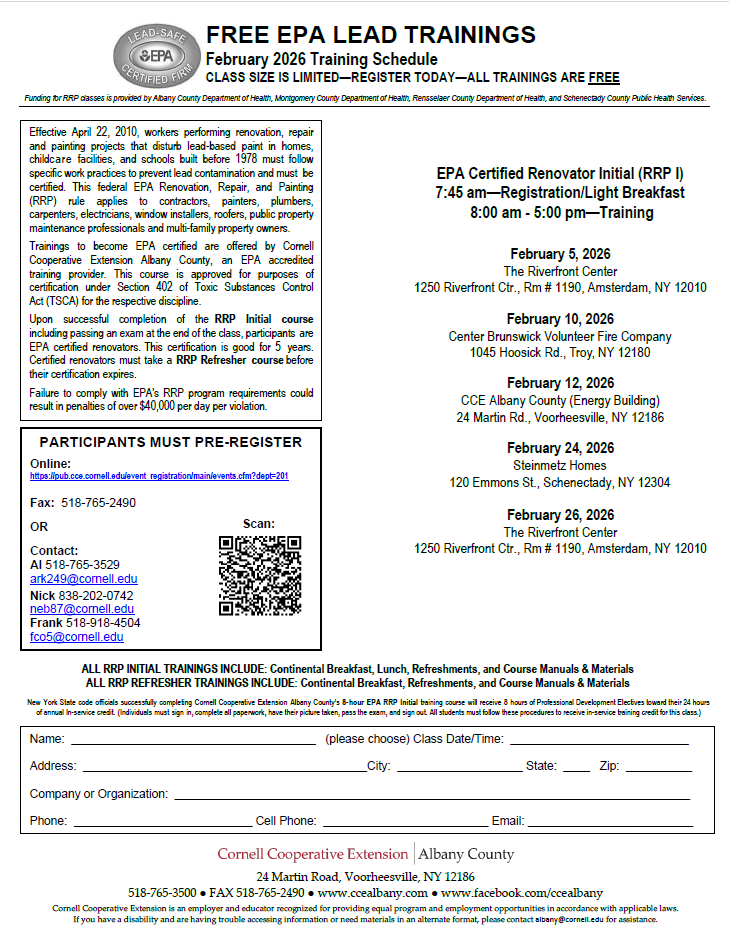
Dolly's Imagination Library
Enroll your child in Dolly Parton’s Imagination Library and get a free book EVERY MONTH until your child’s 5th birthday! Find out more information at imaginationlibrary.com!
Bulky Coats and Car Seats
The days are getting colder and it’s time to make sure infant’s and young children are safe and warm while riding in the car. Bulky puffy jackets cause loose fitting car seat harnesses, putting your child at risk of injury during a car crash. The American Academy of Pediatrics (AAP) suggests doing the following to keep your child car seat safe and warm this winter:
▪ Dress your child in thin layers, like thermals and sweaters with a thin fleece jacket
▪ Use the child's coat or blanket over the car seat harness, not under the harness
▪ Tighten and check the car seat harness; if you can pinch the straps, then they need to be tightened
▪ Use a car seat cover only if it doesn’t have a layer under the body; nothing bulky under the baby
For more winter car seat safety tips go to:
healthychildren.org/.../Winter-Car-Seat-Safety-Tips.aspx
youtube.com/watch?v=7xBMbE4SY2Q (Car Seat Mishap #3 - Improper Fit) 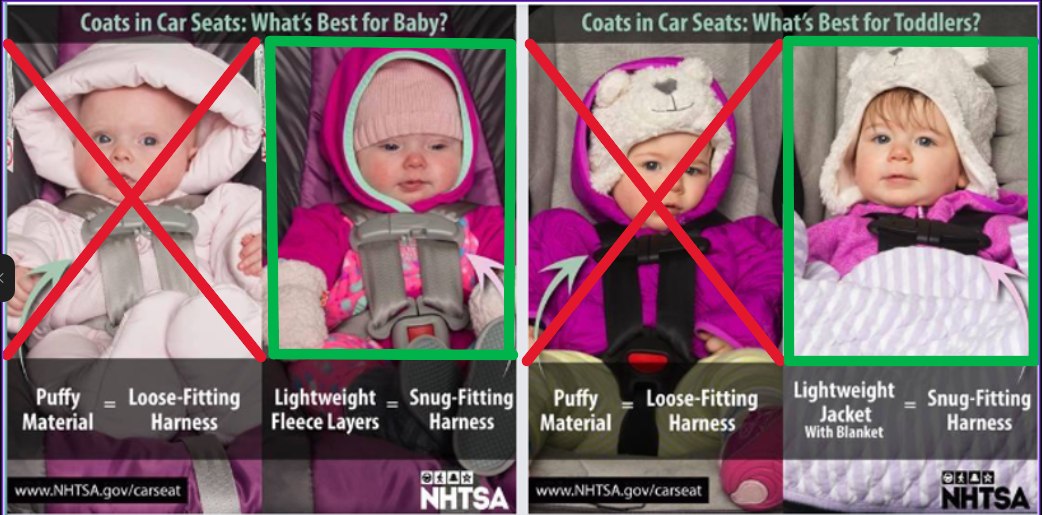
Warnings About Lead in Imported Cookware
The U.S. Food and Drug Administration (FDA) is warning retailers and consumers not to sell or use certain imported cookware that may leach significant levels of lead (Pb) into food. Some types of imported cookware products made from aluminum, brass, and aluminum alloys known as Hindalium/Hindolium or Indalium/Indolium have been tested by FDA and state partners, and have demonstrated the potential to leach lead under conditions designed to mimic their use in contact with food. Young children, women of child-bearing age, and those who are breastfeeding may be at higher risk for potential adverse events after eating food cooked using these products. Click the link for specifics items of concern. FDA Issues Warning About Imported Cookware That May Leach Lead: August 2025 | FDA
Alliance for Positive Health
For almost 40 years, the Alliance for Positive Health (formerly the AIDS Council of Northeastern New York) has been a leader in fighting the epidemic of HIV/AIDS serving 15 counties in northeastern New York. As a leader in testing and care coordination services for those living with HIV, their responsibility is to extend that expertise to those impacted by sexually transmitted diseases, opioid addiction, and associated health and mental heatlh challenges. SERVING 15 COUNTIES OF NORTHEASTERN NEW YORK - ALBANY, CLINTON, COLUMBIA, ESSEX, FRANKLIN, FULTON, GREENE, HAMILTON, MONTGOMERY, RENSSELAER, SARATOGA, SCHENECTADY, SCHOHARIE, WARREN, AND WASHINGTON COUNTIES. allianceforpositivehealth.org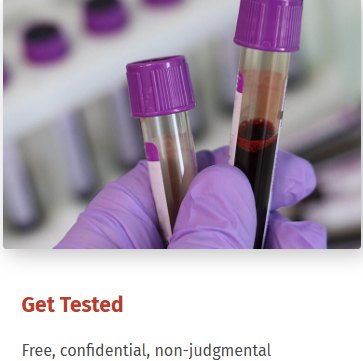
Healthy Media Habits
📱 Is your child’s screen time crowding out other activities?
Make space for play, reading, rest, and family time by setting screen-free zones and turning off autoplay.
Healthy media habits start early!
Learn more from the American Academy of Pediatrics: aap.org/.../media-and-children.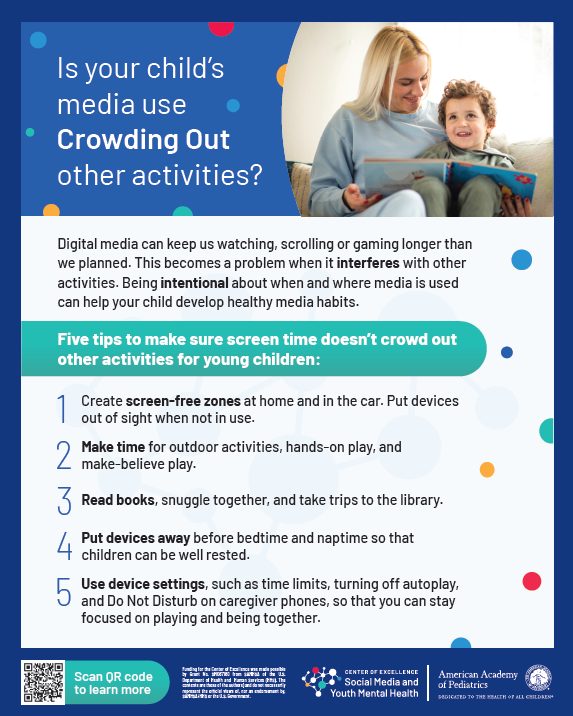
WIC and Health Nutrition for Your Toddlers
WIC helps fuel your busy toddler’s adventures with fruit, veggies, beans, eggs, and other healthy foods. Across New York, kids under five are eating well and staying healthy with WIC. Visit health.ny.gov/prevention/nutrition/wic to see if WIC can help.
Project Lifesaver
The Fulton County Sheriff’s Department has Project Lifesaver, a search and rescue program. As seen in the graphic, the personal transmitter is about the size of a watch and emits a signal that helps to quickly locate an enrolled individual. The program is intended for children with developmental delays or diagnosed conditions such as Down Syndrome or Autism who are prone to escaping, as well as for Alzheimer’s patients. Project Lifesaver is free of charge to Fulton County residents but requires the transmitter battery be changed every 60 days. For more information, contact the Fulton County Sheriff’s Department at 518-736-2100.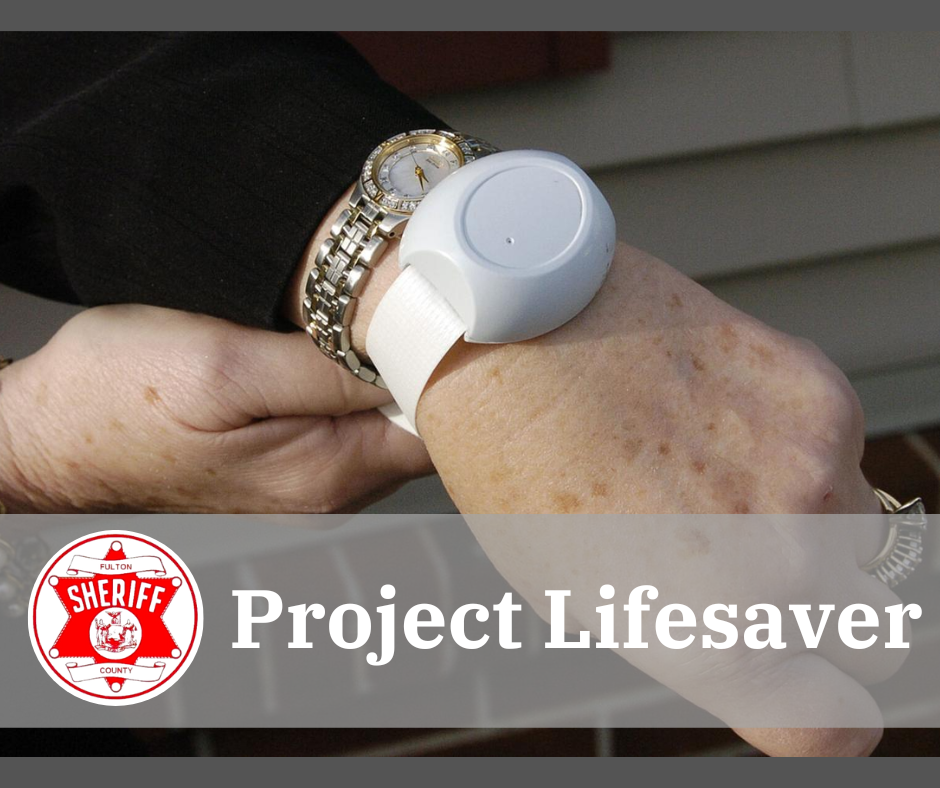
Recall on Rheumacare Capsules
Handelnine Global Limited d/b/a Navafresh is voluntarily recalling Rheumacare Capsules by Virgo UAP Pharma Pvt. Ltd. In testing conducted by the Food and Drug Administration the product has been found to contain lead at levels up to 11,100 ppm, which are higher than permissible levels. Click on the link provided to see if your product is part of the recall. fda.gov/...recall-rheumacare-capsules-virgo-uap
Lead-Safe Renovations EPA
Homes built before 1978 are more likely to have lead-based paint. The federal government banned consumer use of lead-based paint in 1978, but it is still present in millions of homes. Common Renovation, Repair and Paint (RRP) activities that disturb lead-based paint (like sanding, cutting, replacing windows, and more) can create hazardous lead dust and chips which can be harmful to adults and children. Home RRP projects that create even a small amount of lead dust are enough to poison your child and put your family at risk.
youtube.com/watch?v=YnbH7crk-Us
epa.gov/lead/lead-safe-renovations-diyers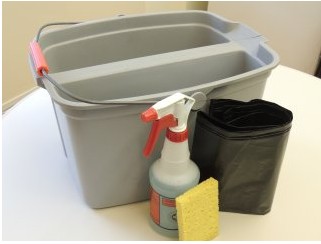

The Fulton County Public Health App
Your health matters—and staying informed has never been easier! Download the Fulton County Public Health App to get updates, programs, and resources that help keep Fulton County strong and healthy.
apps.myocv.com/.../a34012095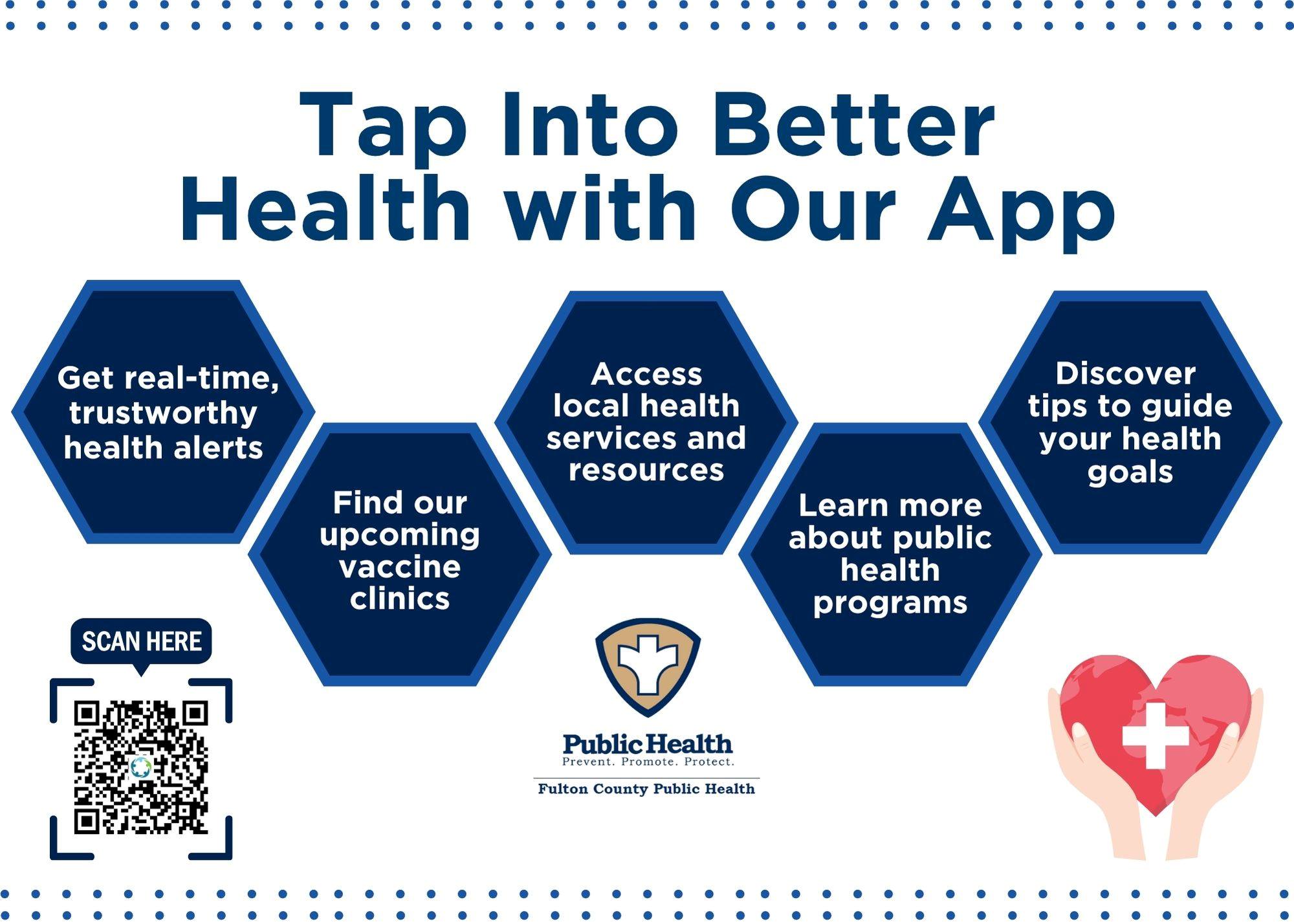
Weatherization Workshop
Join Cornell Cooperative Extension for a FREE Weatherization Workshop and meal at the Johnstown Public Library on Tuesday, February 24 at 1:30pm.
Learn how to save energy, lower your bills, and receive a free home energy savings kit.
Follow the link to register:
pub.cce.cornell.edu/.../main/events_landing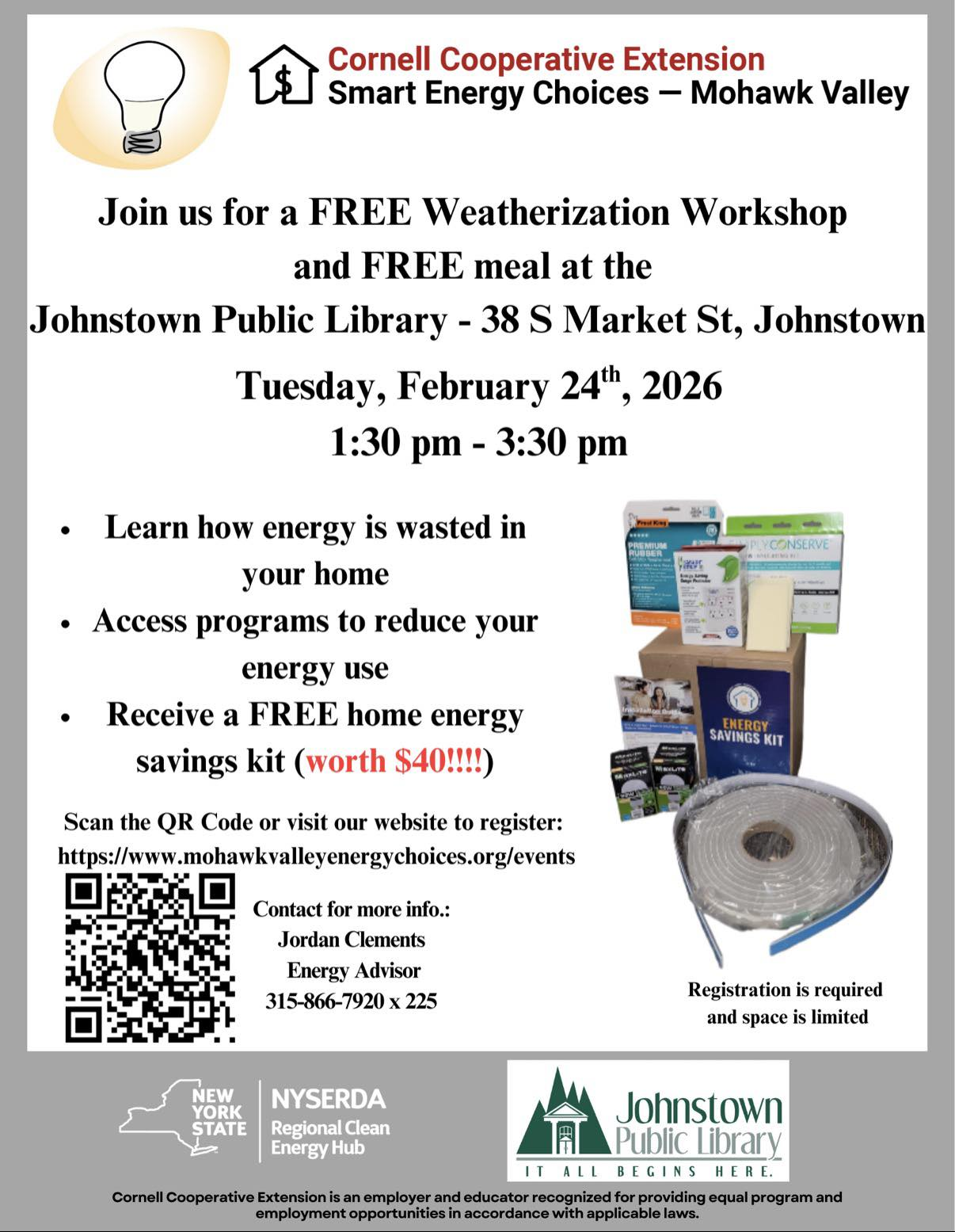
Johnstown Library Blood Drive
Safe blood saves lives. A single donation can help save up to three lives. Donate at Johnstown Public Library’s blood drive on Thursday, February 19 from 1pm-5pm.
Click the link to make your appointment: redcrossblood.org/give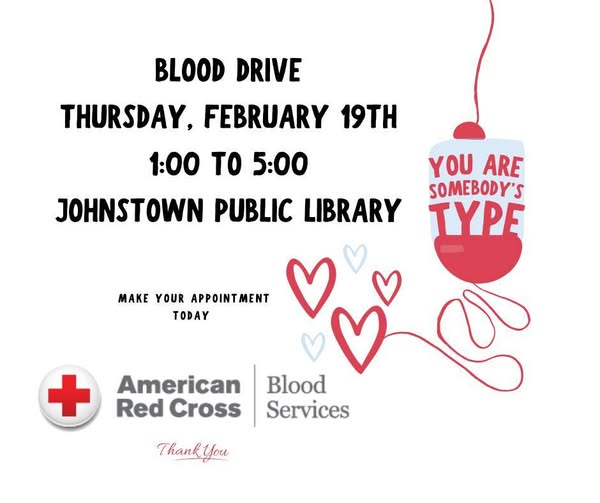
End the Stigma of Addiction
If you or someone you care about is struggling, Fidelis Care can help. Visit fideliscare.org to learn more about their programs for those suffering with a substance use disorder.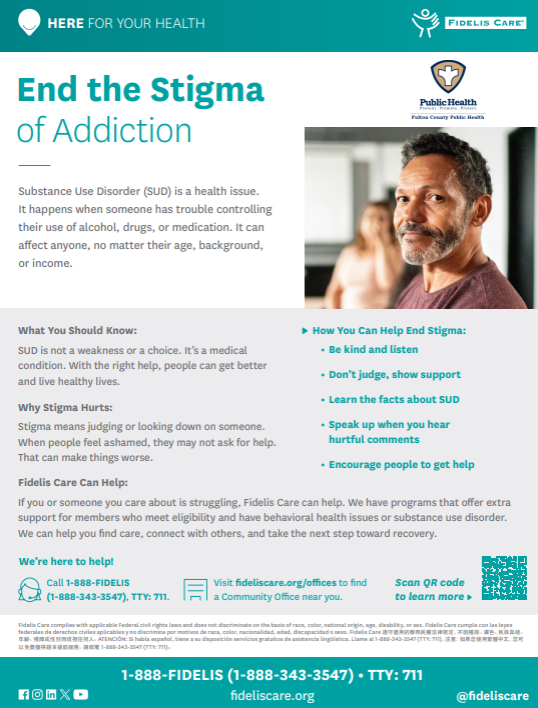
Lead Abatement Training
Free Lead abatement worker initial training. The EPA Lead Abatement Worker training is a 2-day (16-hour) course that teaches on-site workers about the dangers of lead, the roles and responsibilities of a worker, local, State and Federal regulations, and safe lead abatement methods. Abatement is any set of measures designed to permanently eliminate lead-based paint hazards.
Register here: pub.cce.cornell.edu/.../events.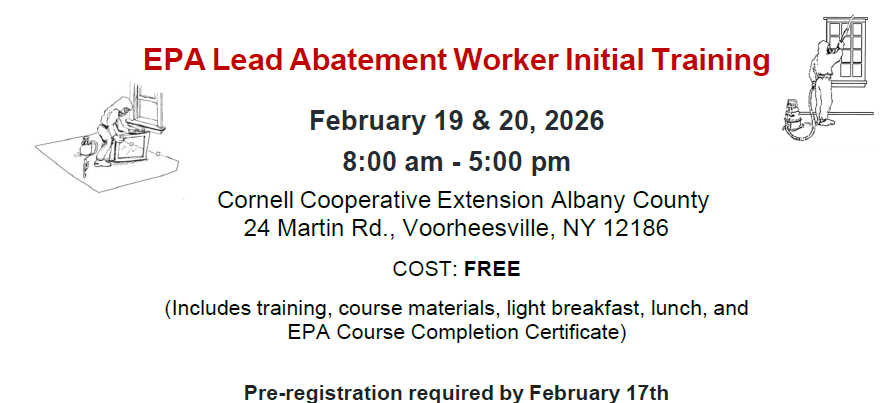
The Importance of Prevention
Knowing how to prevent and control the spread of STIs/HIV and unplanned pregnancies will help_ you talk openly with your sexual partner(s) and be in control of your sexual health. Click the link below to learn more about your prevention options.
campaigns.health.ny.gov/SexualHealth/PreventionAndControl
Free EPA Lead Trainings
FREE EPA Lead Trainings. EPA Certified Renovator Class Training Schedule for February, 2026. EPA certification is federally mandated when projects disturb lead-based paint in a pre-1978 home or residential unit and child-occupied facilities. Property owners, landlords, and contractors throughout New York State performing lead-safe repairs must be EPA Certified in Lead Renovation, Repair, and Painting (RRP) and follow specific work practices to prevent lead contamination. Trainings to become EPA RRP certified are offered by Cornell Cooperative Extension Albany County, an EPA accredited training provider. See the attached February 2026 EPA Lead Training Flyer or visit Cornell Cooperative Extension Albany County for a current schedule of free, local trainings to learn lead-safe work practices and help reduce childhood lead poisoning. Participants must pre-register. Class size is limited. All trainings are free.
Register Here.
Milk and Cookies Support Group for Moms
Are you looking for a place to meet other moms in a relaxed and welcoming environment, while enjoying fresh-baked cookies?
Nathan Littauer Hospital is hosting “Milk and Cookies”, a Moms Support Group, at the Nathan Littauer Auditorium. The group is open to all mothers’, including pregnant and expecting moms, whether you’re new to motherhood or have years of experience. Each session will be attended by a NLH Birthing Center RN who can offer guidance and support for every stage of motherhood. Whether you’re looking to meet other local moms, share stories and struggles or just get out of the house --- “Milk and Cookies” is here for you.
The Health Risks of Vaping
Vaping puts health at risk. Nicotine in e-cigarettes is highly addictive and especially harmful for youth. Let’s work together in Fulton County to prevent vaping and support healthier choices. https://teen.smokefree.gov/quit-vaping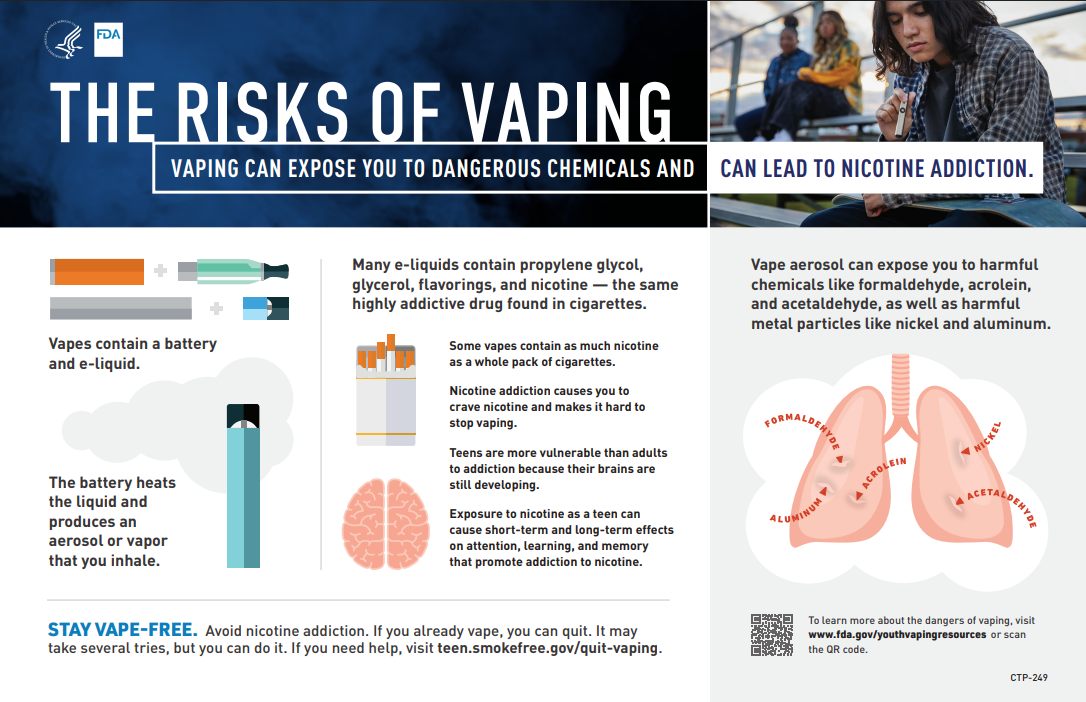
FACE Training – Testing Accommodations
Free Webinar: Testing Accommodations for Students with Disabilities: For Educators
For anyone who has or interacts with children with Individualized Service Plans (IEP)!
Learn about the decision making process, accommodation types, and documents that pertain to having testing accommodations put into place.
You can join on Febuary 24, 2026 from 5 p.m. to 8 p.m. Click the link to register:
mylearningplan.com/WebReg/...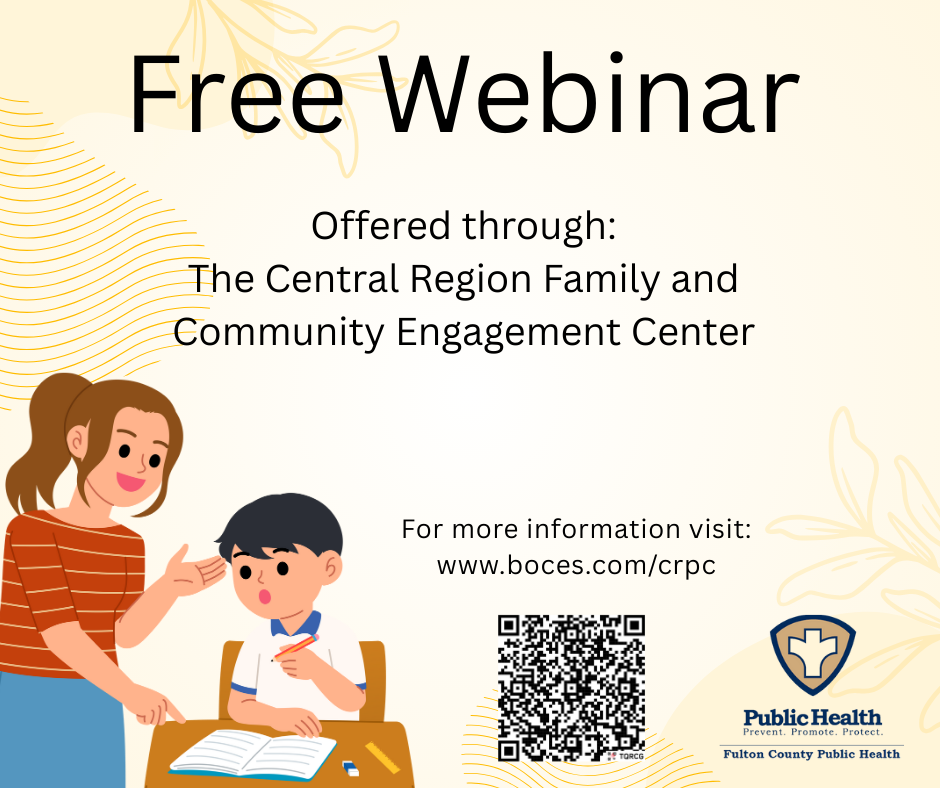
Maternal Heart Health Awareness
February is Heart Health Awareness month!
A healthy heart is the best start for a healthy pregnancy and newborn. During pregnancy, your heart is working harder than usual to pump blood to you and your baby. The extra stress can cause new problems to emerge during pregnancy, such as high blood pressure, diabetes, or preeclampsia. These problems can happen to you during pregnancy, in labor and delivery -- even up to a year after your child is born.
The good news is that high blood pressure and other conditions that put stress on the heart during pregnancy are preventable and treatable. The first step is getting early prenatal care and knowing your risk factors.
For more information on risk factors, prevention and care visit:
cdc.gov/.../high-blood-pressure-during-pregnancy.html
nhlbi.nih.gov/.../heart-health-and-pregnancy.
Indoor Walking Programs in Fulton County
Indoor walking/swimming is back at the Gloversville, Johnstown, and Mayfield school districts. They are a great way to stay active during the winter months. Indoor walking/swimming for all districts will only take place on days when school is in session and will be cancelled when district activities/school is also cancelled.
For Gloversville High School Indoor Walking Program:
• Takes place from November 3, 2025 – TBD, on Mondays – Thursdays from 5:30pm - 7:30pm.
• For adults that are 18 years and older.
• Participants must sign in and out at the entrance at the main office. 
For the GJSD Indoor Walking Program:
• Takes place from December 1, 2025 – April 4, 2026, on Mondays – Thursdays from 6:00pm - 8:00 pm at Warren St. Elementary School.
• Use the main entrance and sign in with the school attendant present.
• Closed February 16, 2026 – February 19, 2026.
For the GJSD Indoor Swimming Program:
• Takes place from December 6, 2025 – TBD, on Saturdays from 9:00am - 11:00am at Johnstown High School.
• Use the back entrance by the pool/bus loop and sign in with the school attendant present.
• Children 12 and under must be accompanied by an adult. Toddlers and younger must wear swimming diapers in the pool. You are allowed to bring in your own swimming aides (swimmies and other devices that are intended to help you stay afloat and swim). Pool floats are prohibited.
For the Mayfield Elementary School Indoor Walking Program:
• Takes place from January 5, 2026 – TBD, on Mondays – Fridays from 5:00pm - 8:00pm.
• For adults that are 18 years and older. Those who are younger than 18 must be accompanied by an adult who is 18 years and older.
• Participants must sign in and out everytime they walk.
• Walkers must sign an insurance waiver at their first visit to the program that will be held on file. Insurance waivers will be available at the front door or can be accessed here: Waiver-fillable-PDF. To digitally sign the online waiver: please download first, complete and sign all fillable fields, and email to: anastasia.stacie@mayfieldcsd.org.
Spring Planning and Zoning Training
The Planning Boards of Fulton and Montgomery County are holding their annual Spring Planning and Zoning Training on March 24, 2026. Use the link below to register for free today.
Register Here: Spring Planning and Zoning Training Registration
Drop The Vape
Think vaping is safer than smoking? It’s not. Want to Quit? Sign up for texts at DropTheVape.org for free, confidential help. nysmokefree.com/drop-the-vape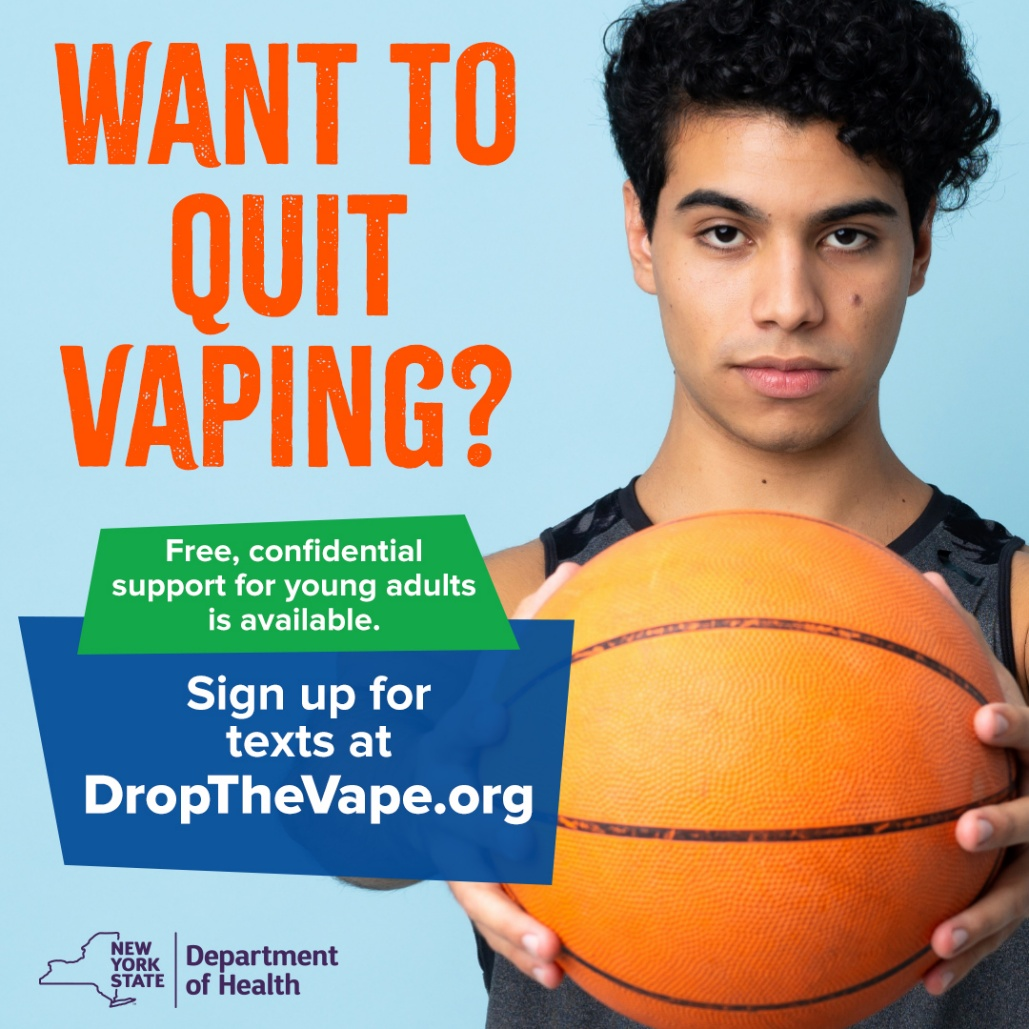
February is Prenatal Infection Prevention Month
A healthy pregnancy starts with prevention! Maternal infections are easily passed along from mother to baby during pregnany and birth. These bacterial, viral or fungal infections can cause serious health risks to a growing fetus, as well as miscarriage and preterm labor.
The good news is that prenatal infections can be prevented by:
Getting vaccinated
Practicing good hand hygiene and dental care
Enjoying a healthy diet and
Seeking regular prenatal care
Learn more about preventing prenatal infections and supporting your baby during pregnancy here:
acog.org/.../preventing-infections-in-pregnancy
acog.org/womens-health/pregnancy
RSV Vaccines for Infants
RSV can cause severe illness in newborns. Antibody immunizations can help protect against RSV.
Learn more: cdc.gov/.../protect-infants.html 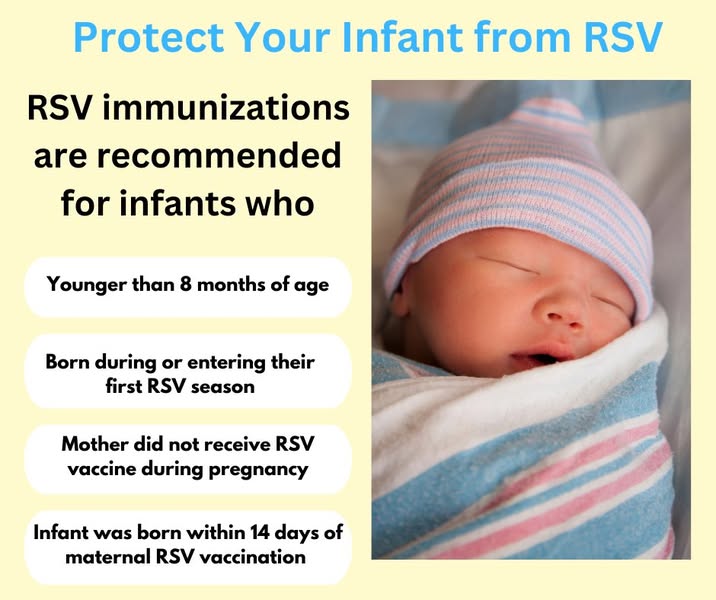
Lead Prevention Pilot Program
Leading In Lead Prevention Pilot Program grant funding may be available for lead based paint remediation and abatement for eligible properties. Scan the QR code, call or email Better Community Neighborhoods Inc. (BCNI) to learn more. bcnihousing.org

SUNY Reconnect - Free Associates Degrees for Adult Learners
SUNY Reconnect is helping advance the careers of adults in New York by offering free associates degrees to those who:
• Are a New York State resident
• Are 25-55 years old
• Do not have a college degree
Visit suny.edu/communitycollege/free-cc/ to learn about the available programs near you.
Free EPA Lead Trainings
FREE EPA Lead Trainings. EPA Certified Renovator Class Training Schedule for February, 2026. EPA certification is federally mandated when projects disturb lead-based paint in a pre-1978 home or residential unit and child-occupied facilities. Property owners, landlords, and contractors throughout New York State performing lead-safe repairs must be EPA Certified in Lead Renovation, Repair, and Painting (RRP) and follow specific work practices to prevent lead contamination. Trainings to become EPA RRP certified are offered by Cornell Cooperative Extension Albany County, an EPA accredited training provider. See the attached February 2026 EPA Lead Training Flyer or visit Cornell Cooperative Extension Albany County for a current schedule of free, local trainings to learn lead-safe work practices and help reduce childhood lead poisoning. Participants must pre-register. Class size is limited. All trainings are free.
Register Here.
Steps to Fight Respiratory Viruses
Flu, RSV, COVID-19 and other respiratory illnesses can quickly become life threatening conditions. The first steps to protecting yourself and your family are:
1. Stay up-to-date on vaccines
2. Stop the spread by:
• washing hands with soap and water for at least 20 seconds
• avoid touching your eyes, nose and mouth,
• cough and sneeze into a tissue,
• If your sick, STAY HOME
If you or someone you love does get sick, seek medical attention early, before the condition becomes serious. Know when to see a doctor:
• A fever that doesn’t go down or go away
• A cough that lasts more than 2-3 weeks
• Painful swallowing (more than a sore throat)
• An earache, persistent headache or neck pain
• Symptoms that last more than 10 days or get worse instead of better
• Persistent or severe vomiting and or diarrhea
• Confusion or altered mental status (unable to respond correctly to simple questions)
For more information:
health.ny.gov/diseases/.../understanding
health.ny.gov/.../respiratory_viruses/
vaccines.gov
Weatherization Workshop
Join Cornell Cooperative Extension for a FREE Weatherization Workshop and meal at the Johnstown Public Library on Tuesday, February 24 at 1:30pm.
Learn how to save energy, lower your bills, and receive a free home energy savings kit.
Follow the link to register:
pub.cce.cornell.edu/.../main/events_landing
Stroke Treatment Can't Wait
Stroke occurs in the brain, but it can affect the entire body. It is important to quickly assess and treat stroke to reduce long-term disability.
Learn more at: ninds.nih.gov/.../stroke/assess-and-treat #KnowStroke #NINDS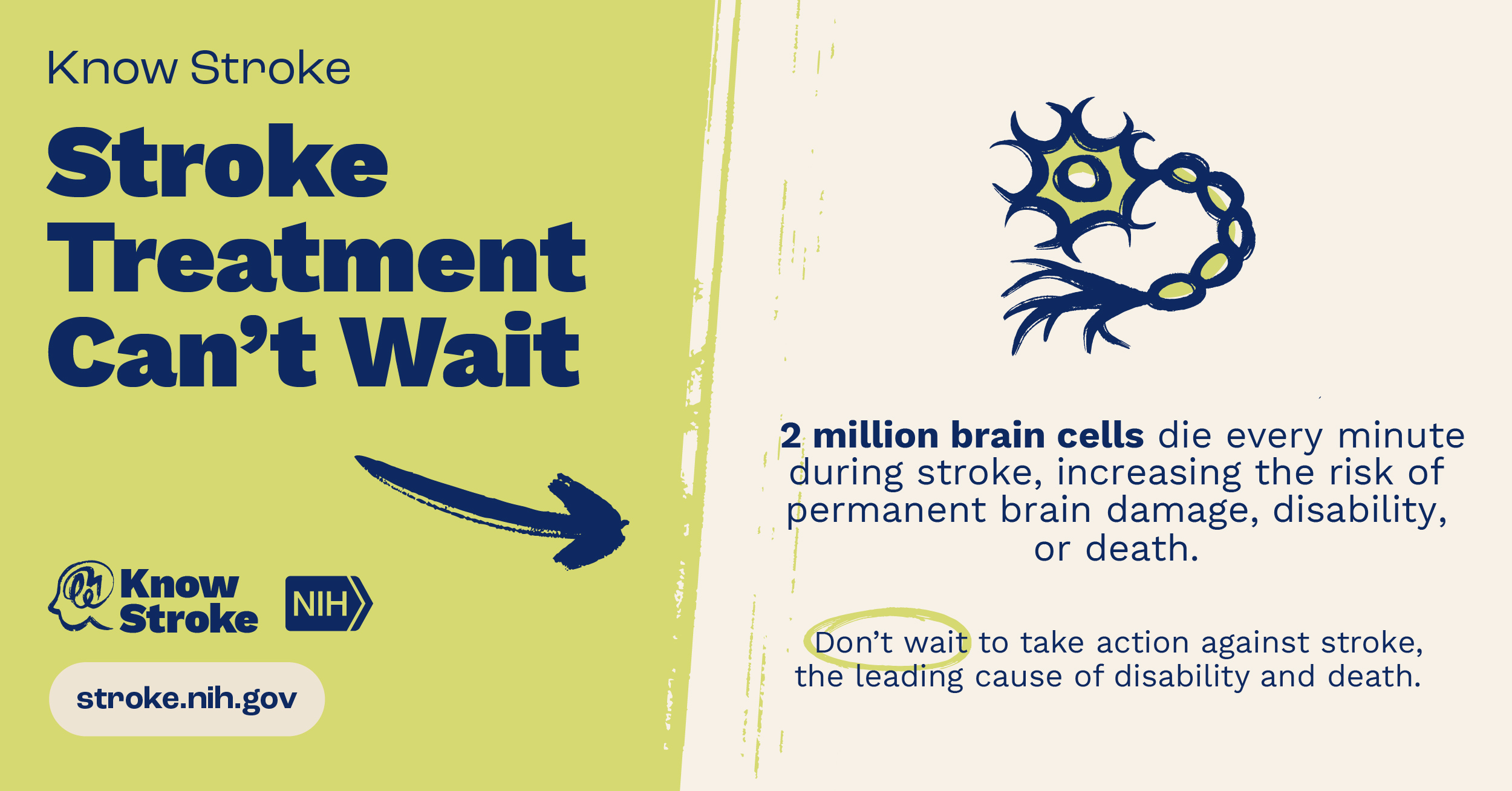
Additional Recall on Cookware Products
Two additional cookware products that may leach lead into food when used for cooking or food storage have been added to the table in the link below. The U.S. Food and Drug Administration (FDA) is warning retailers and consumers not to sell or use certain imported cookware that may leach significant levels of lead (Pb) into food. Some types of imported cookware products made from aluminum, brass, and aluminum alloys known as Hindalium/Hindolium or Indalium/Indolium have been tested by FDA and state partners, and have demonstrated the potential to leach lead under conditions designed to mimic their use in contact with food. Young children, women of child-bearing age, and those who are breastfeeding may be at higher risk for potential adverse events after eating food cooked using these products. fda.gov/.../fda-issues-warning-about-imported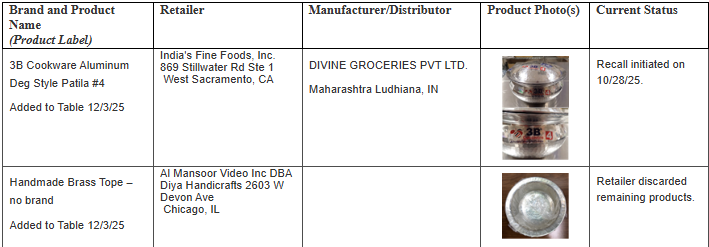
Free Mammograms
St. Mary’s Breast Center is performing free mammograms for eligible patients on Wednesday, February 18, 2026 from 3pm-5pm.
Uninsured patients between the ages of 40-64 are eligible.
Please call Cancer Services for more information 518-841-3726.
Sleep Strategies for Children Diagnosed with Autism
Children diagnosed with Autism often have sleep difficulties, Center for Autism and Related Disabilities (CARD) is offering a webinar on this topic, free to NYS residents. Offered on February 12, 2026 from 6pm to 7:30p, it is an ideal opportunity for parents to learn strategies to help address challenges. Registration is required, do so here:
https://www.albany.edu/.../family-training-series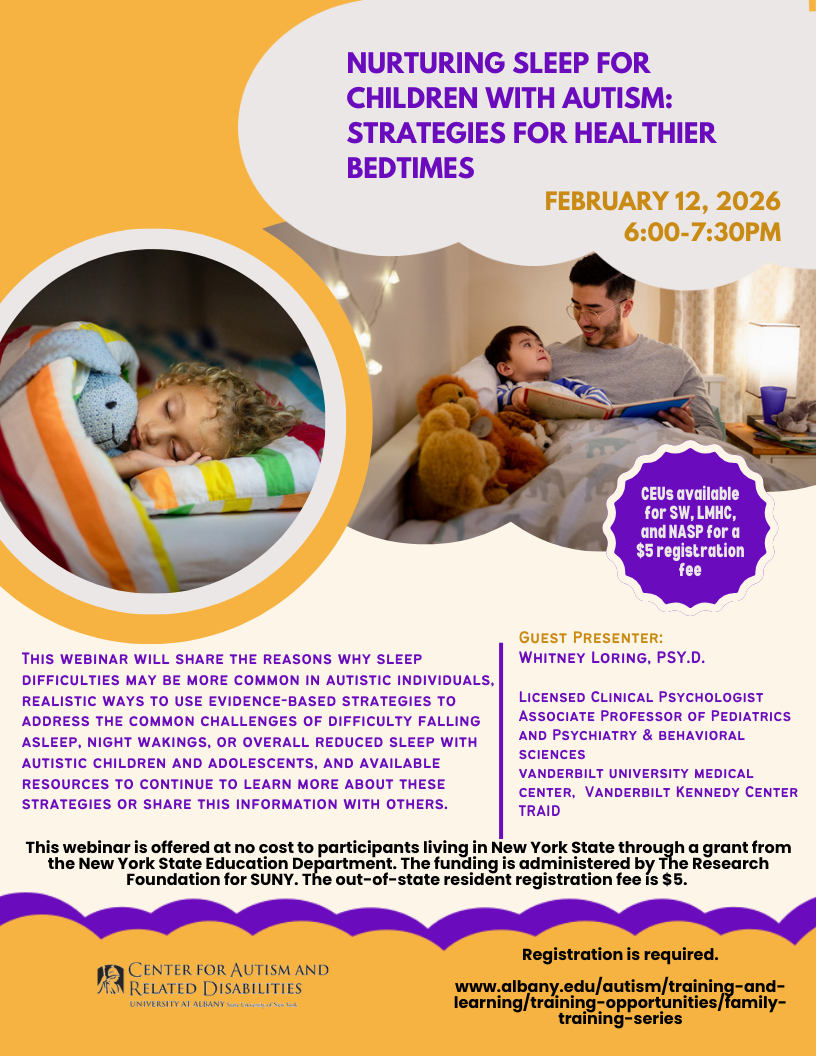
The Fulton County Public Health App
Your health matters—and staying informed has never been easier! Download the Fulton County Public Health App to get updates, programs, and resources that help keep Fulton County strong and healthy.
apps.myocv.com/.../a34012095
Brain Health Habit Builder
Support your brain health! Your daily habits matter when it comes to brain health. The Alzheimer’s Association’s Brain Health Habit Builder is a free, easy tool that helps you assess your current habits and identify small, realistic steps to support your brain over time.
Learn more and get started here: https://www.alz.org/.../brain.../brain-health-habit-builder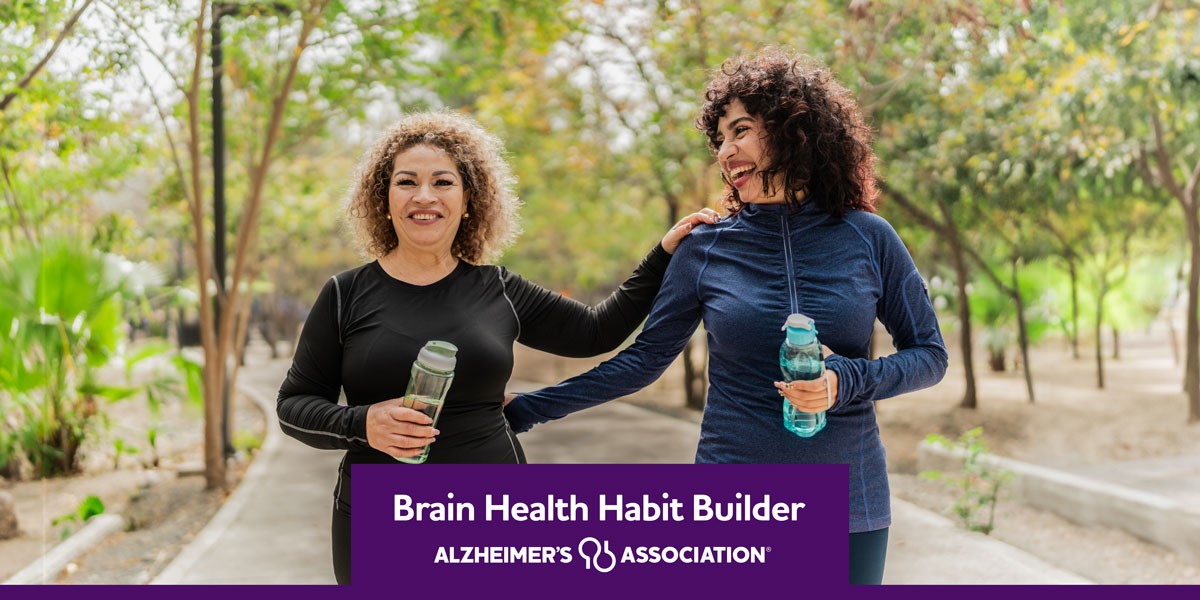
Respiratory Virus Season
Flu, COVID-19, RSV and other respiratory illnesses can be serious. The first step to protect yourself and your family is to be up to date on vaccinations. Learn about vaccines and the protection they offer everyone. health.ny.gov/.../frequently_asked_questions.htm.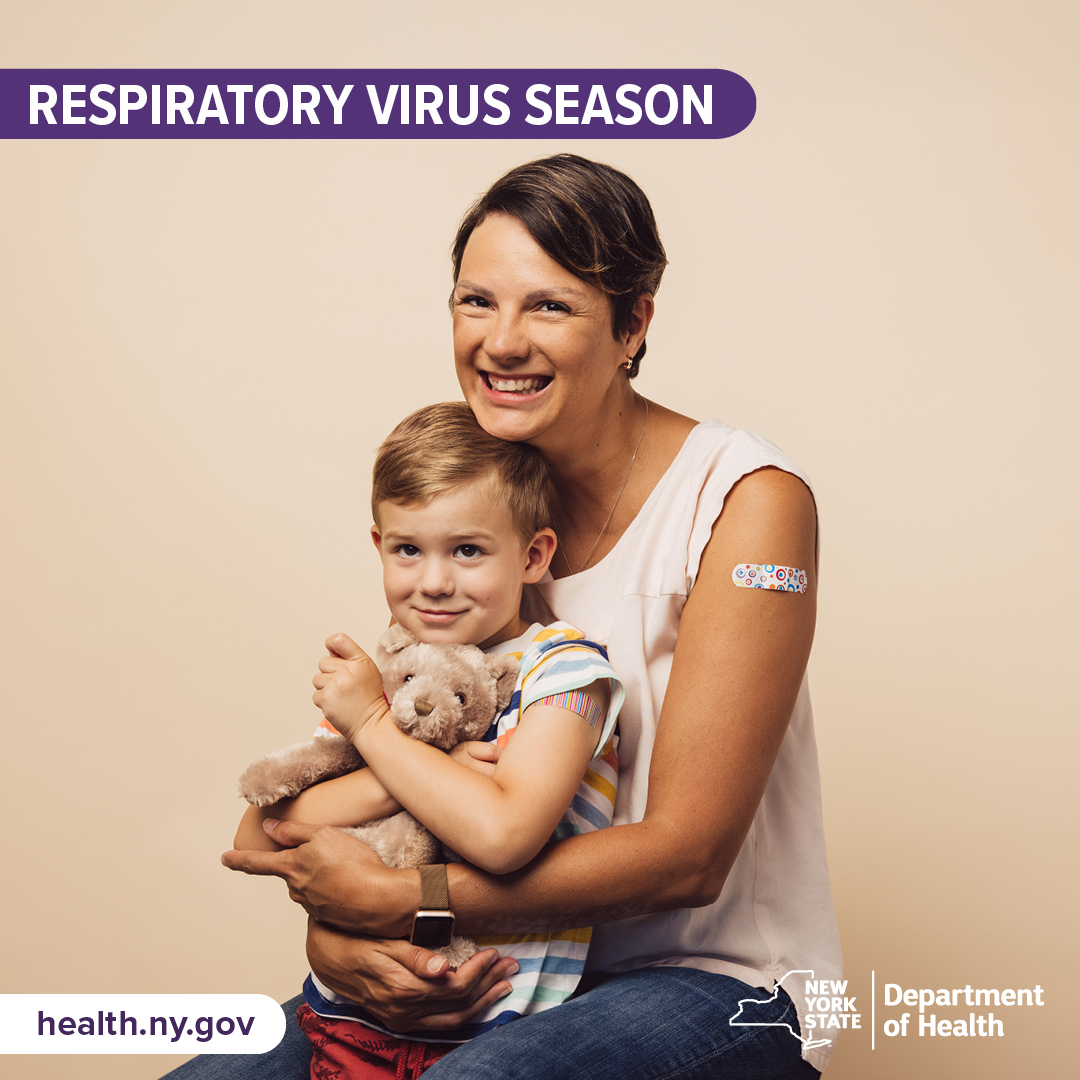
Live Webinar: The 360 Thinking Model
SUNY Old Westbury is offering a Free evening webinar. The speaker, Sarah Ward, as shown in the photo, will discuss her 360 Thinking Executive Function Program, which teaches strategies to support students in developing self regulation and manage impulses. Register at:
nysrcasd.org/events/1547/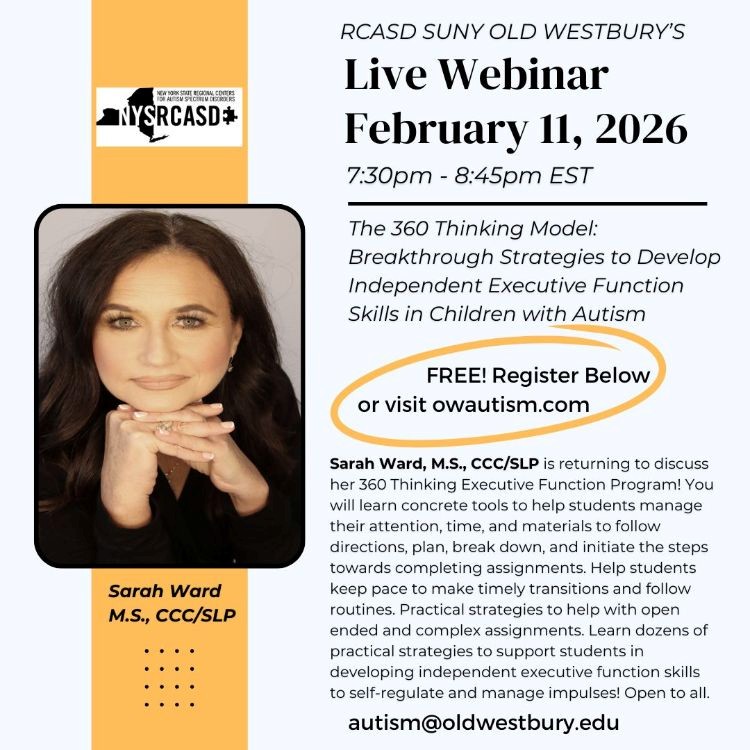
Warnings About Lead in Imported Cookware
The U.S. Food and Drug Administration (FDA) is warning retailers and consumers not to sell or use certain imported cookware that may leach significant levels of lead (Pb) into food. Some types of imported cookware products made from aluminum, brass, and aluminum alloys known as Hindalium/Hindolium or Indalium/Indolium have been tested by FDA and state partners, and have demonstrated the potential to leach lead under conditions designed to mimic their use in contact with food. Young children, women of child-bearing age, and those who are breastfeeding may be at higher risk for potential adverse events after eating food cooked using these products. Click the link for specifics items of concern. FDA Issues Warning About Imported Cookware That May Leach Lead: August 2025 | FDA
Coats in Car Seats
The days are getting colder and it’s time to make sure infant’s and young children are safe and warm while riding in the car. Bulky puffy jackets cause loose fitting car seat harnesses, putting your child at risk of injury during a car crash. The American Academy of Pediatrics (AAP) suggests doing the following to keep your child car seat safe and warm this winter:
▪ Dress your child in thin layers, like thermals and sweaters with a thin fleece jacket
▪ Use the child's coat or blanket over the car seat harness, not under the harness
▪ Tighten and check the car seat harness; if you can pinch the straps, then they need to be tightened
▪ Use a car seat cover only if it doesn’t have a layer under the body; nothing bulky under the baby
For more winter car seat safety tips go to:
healthychildren.org/.../Winter-Car-Seat-Safety-Tips.aspx
youtube.com/watch?v=7xBMbE4SY2Q (Car Seat Mishap #3 - Improper Fit) 
Sodium and Your Health
Eating too much sodium, which is the primary ingredient in salt, can raise your blood pressure, as well as your risk of heart attack and stroke. Start by checking labels and choosing fresh fruits and vegetables. Visit: health.ny.gov/prevention/nutrition/sodium_reduction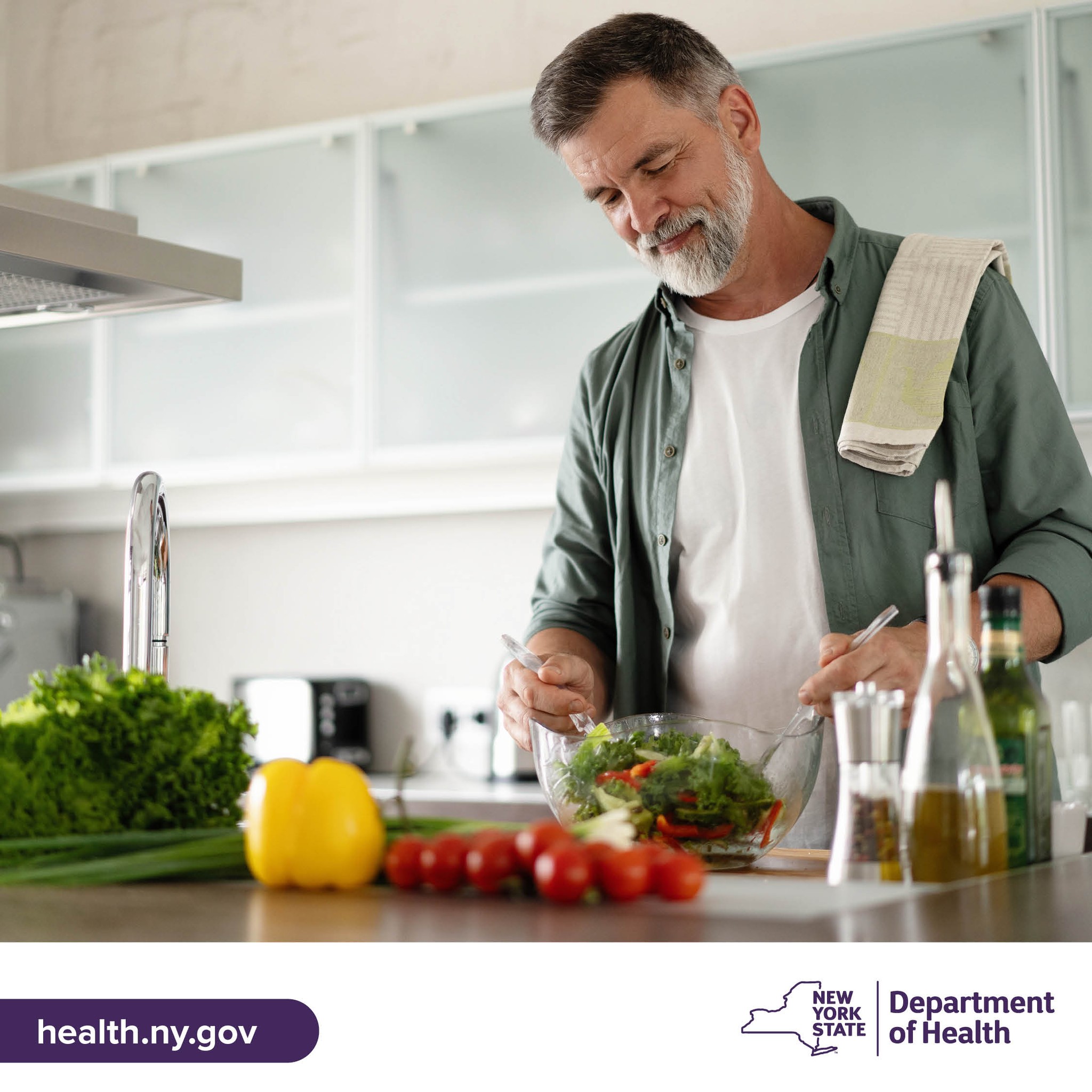
Recall on Rheumacare Capsules
Handelnine Global Limited d/b/a Navafresh is voluntarily recalling Rheumacare Capsules by Virgo UAP Pharma Pvt. Ltd. In testing conducted by the Food and Drug Administration the product has been found to contain lead at levels up to 11,100 ppm, which are higher than permissible levels. Click on the link provided to see if your product is part of the recall. fda.gov/...recall-rheumacare-capsules-virgo-uap
Emergency Information
How you #StayInformed in an emergency isn’t carved in stone. Find several trusted sources of #emergency information & have multiple ways to receive alerts & warnings. Learn more at https://www.cdc.gov/prepyourhealth/planahead/stayinformed/index.htm #PrepYourHealth
To find Rehab Centers that provide alcohol, drug, and other substance abuse rehabilitation you can call 1-866-972-0589. To find a list of rehabs in each state, visit https://freerehabcenters.org/
A growing public health crisis is suicide. Freerehabcenters.org has put together resources for the prevention of suicide including crisis lines, veterans suicide resources, youth suicide resources, and other mental health and suicide prevention resources. Visit https://www.freerehabcenters.org/article/suicide-prevention-resources to learn more.
The Fulton County Public Health Department under the direction of the Fulton County Board of Supervisors and the New York State Department of Health, seeks to promote wellness, to protect from disease, to prevent injury/disability, to prepare for emerging illness/disease and to assist Fulton County residents in attaining and maintaining optimal health.
Each person and/or their family will be educated in accessing health care and will be empowered to be responsible for the decisions regarding their health care needs. Many services offered by FCPH are provided free of charge; others have eligibility criteria and sliding fee scales are available for the uninsured.
For immunization or car seat appointments call 518-736-5720 to schedule your visit.
Where do I get information on the Lead Rental Registry?
Please visit the New York State Department of Health's website at https://www.health.ny.gov/environmental/lead/lead_rental_registry/.
Where can I get information on my responsibility as a property owner under the Lead Rental Registry law?
Visit the New York State Department of Health website at https://www.health.ny.gov/environmental/lead/renovation_repair_painting/
To learn more about the EPA RRP trainings, visit the EPA website at https://cdxapps.epa.gov/ocspp-oppt-lead/
If you own rental property in Gloversville, will you need to register the property in the Lead Rental Registry?
Yes, property owners will need to register their property in Lead Safe. To start an account and learn more on how to register your property, visit https://www.health.ny.gov/environmental/lead/lead_rental_registry/lead_safe_ny.htm
How do I go about getting rabies vaccination for my pet?
Pet immunization clinics are held periodically throughout the year. A copy of the current Rabies Clinic Vaccination flyer can be accessed by visiting https://www.fultoncountyny.gov/rabies>.
A nominal donation is requested. Rabies clinic dates are also advertised in local newspapers, on Facebook and posted in town halls. Clinic pre-registration is available by calling (518) 736-5720 three weeks prior to each clinic.
How do I reduce, prevent and eliminate lead in my home?
Please visit the New York State Department of Health's website at www.health.ny.gov/environmental/lead/ or the Centers of Disease Control and Prevention’s (CDC) website at https://www.cdc.gov/nceh/lead/.
For specific questions, please contact our Lead Nurse here at Fulton County Public Health at (518) 736-5720.
How do I qualify for the low-income car seat program?
You or your child need to have some type of public assistance (WIC benefits, Medicaid, food stamps) or be below WIC income guidelines (200% of poverty). Additionally, you need to have a valid reason for needing a car seat.
You can sign up for an appointment by calling our office at (518) 736-5720 and asking to speak with our Child Passenger Safety Technician.
I am concerned about my child's development. Are there services available?
Early Intervention is for children with development delays from birth to age 3. Children are evaluated and if found eligible for the program may receive services such as speech therapy, occupational therapy, physical therapy or special education services (to name some).
Children ages 3-5 are evaluated through their local school district Committee on Preschool Special Education (CPSE) to determine eligibility and services. Both programs are voluntary.
How do I get my immunization records?
Fulton County Public Health can provide copies of immunizations that were obtained in their office.
If your immunizations were not done at Fulton County Public Health, immunization records can be obtained from doctors' offices and schools (K-12 or college) attended.
How do I treat head lice and what are the school/daycare rules? Also, how do you treat for bedbugs?
Please watch this YouTube video: "Head Lice to Dead Lice."
For bed bugs, please watch this YouTube video: "7 Things You Should Know About Bed Bugs."
Where can I learn more about cooling centers in NYS?
Visit the NYS Department of Health at https://www.health.ny.gov/environmental/weather/cooling/about.htm
Where can I go to get more information on Cooling Assistance Benefits?
Visit the NYS Office of Temporary and Disability Assistance Home Energy Assistance Program (HEAP) site at https://otda.ny.gov/programs/heap/#cooling-assistance
Where can I go to get more information on HEAP Heating Assistance programs?
Visit the NYS Office of Temporary and Disability Assistance Home Energy Assistance Program (HEAP) site at https://otda.ny.gov/programs/heap/#regular-benefit
What is the Hunger Prevention and Nutrition Assistance Program (HPNAP) and how do I learn more about it?
Visit the NYS Department of Health Hunger Prevention and Nutrition Assistance Program site at https://www.health.ny.gov/prevention/nutrition/hpnap/



